1
About once or twice every month I engage in public debates with those whose pressing need it is to woo and to win the approval of supernatural beings. Very often, when I give my view that there is no supernatural dimension, and certainly not one that is only or especially available to the faithful, and that the natural world is wonderful enough–and even miraculous enough if you insist– I attract pitying looks and anxious questions. How, in that case, I am asked, do I find meaning and purpose in life? How does a mere and gross materialist, with no expectation of a life to come, decide what, if anything, is worth caring about? Depending on my mood, I sometimes but not always refrain from pointing out what a breathtakingly insulting and patronizing question this is. (It is on a par with the equally subtle inquiry: Since you don't believe in our god, what stops you from stealing and lying and raping and killing to your heart's content?) Just as the answer to the latter question is: self-respect and the desire for the respect of others–while in the meantime it is precisely those who think they have divine permission who are truly capable of any atrocity–so the answer to the first question falls into two parts. A life that partakes even a little of friendship, love, irony, humor, parenthood, literature, and music, and the chance to take part in battles for the liberation of others cannot be called 'meaningless' except if the person living it is also an existentialist and elects to call it so. It could be that all existence is a pointless joke, but it is not in fact possible to live one's everyday life as if this were so. Whereas if one sought to define meaninglessness and futility, the idea that a human life should be expended in the guilty, fearful, self-obsessed propitiation of supernatural nonentities… but there, there. Enough.Christopher Hitchens
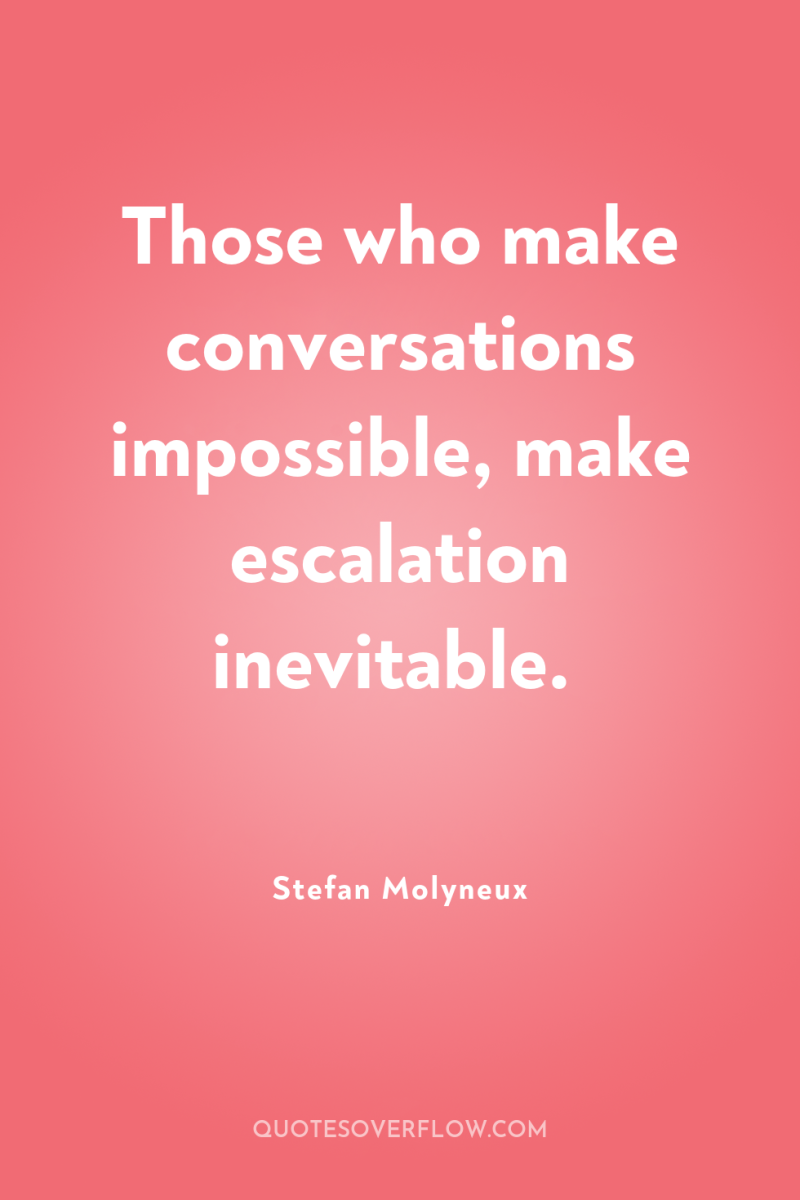
2
Those who make conversations impossible, make escalation inevitable.Stefan Molyneux
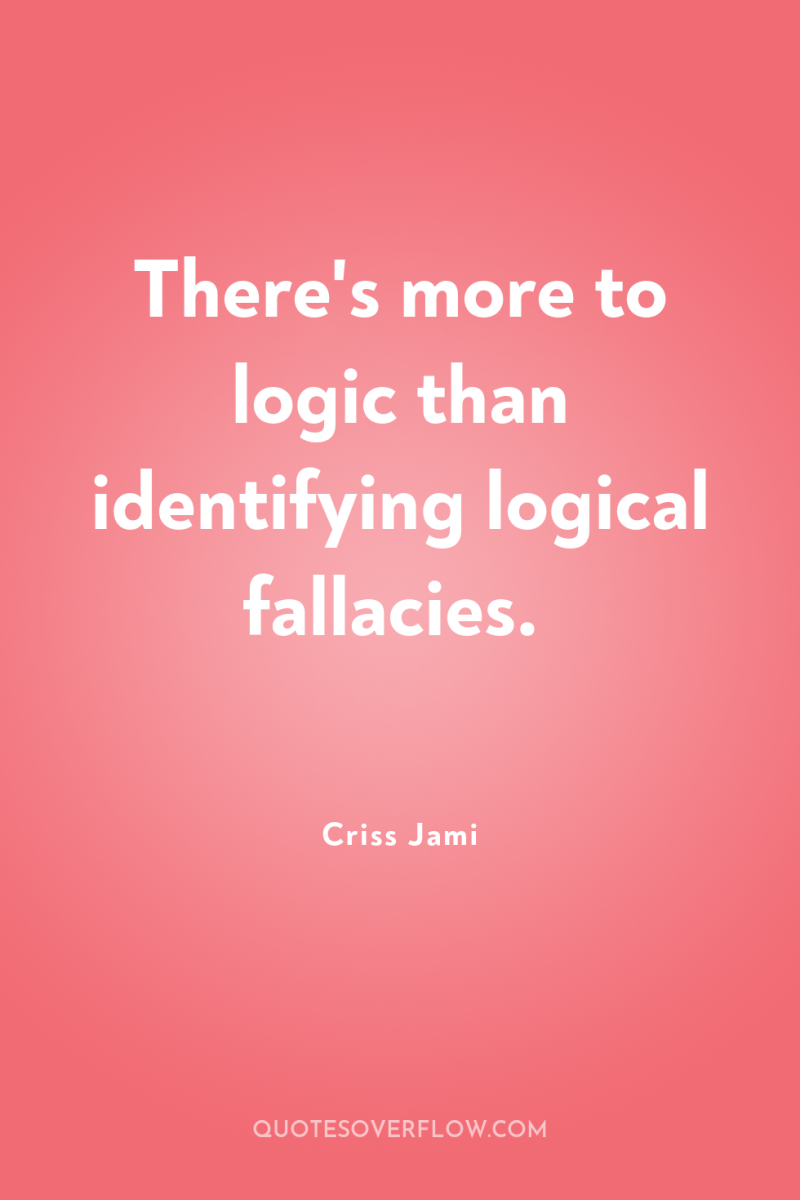
3
There's more to logic than identifying logical fallacies.Criss Jami
4
Let's say that the consensus is that our species, being the higher primates, Homo Sapiens, has been on the planet for at least 100, 000 years, maybe more. Francis Collins says maybe 100, 000. Richard Dawkins thinks maybe a quarter-of-a-million. I'll take 100, 000. In order to be a Christian, you have to believe that for 98, 000 years, our species suffered and died, most of its children dying in childbirth, most other people having a life expectancy of about 25 years, dying of their teeth. Famine, struggle, bitterness, war, suffering, misery, all of that for 98, 000 years. Heaven watches this with complete indifference. And then 2000 years ago, thinks 'That's enough of that. It's time to intervene, ' and the best way to do this would be by condemning someone to a human sacrifice somewhere in the less literate parts of the Middle East. Don't lets appeal to the Chinese, for example, where people can read and study evidence and have a civilization. Let's go to the desert and have another revelation there. This is nonsense. It can't be believed by a thinking person. Why am I glad this is the case? To get to the point of the wrongness of Christianity, because I think the teachings of Christianity are immoral. The central one is the most immoral of all, and that is the one of vicarious redemption. You can throw your sins onto somebody else, vulgarly known as scapegoating. In fact, originating as scapegoating in the same area, the same desert. I can pay your debt if I love you. I can serve your term in prison if I love you very much. I can volunteer to do that. I can't take your sins away, because I can't abolish your responsibility, and I shouldn't offer to do so. Your responsibility has to stay with you. There's no vicarious redemption. There very probably, in fact, is no redemption at all. It's just a part of wish-thinking, and I don't think wish-thinking is good for people either. It even manages to pollute the central question, the word I just employed, the most important word of all: the word love, by making love compulsory, by saying you MUST love. You must love your neighbour as yourself, something you can't actually do. You'll always fall short, so you can always be found guilty. By saying you must love someone who you also must fear. That's to say a supreme being, an eternal father, someone of whom you must be afraid, but you must love him, too. If you fail in this duty, you're again a wretched sinner. This is not mentally or morally or intellectually healthy. And that brings me to the final objection - I'll condense it, Dr. Orlafsky - which is, this is a totalitarian system. If there was a God who could do these things and demand these things of us, and he was eternal and unchanging, we'd be living under a dictatorship from which there is no appeal, and one that can never change and one that knows our thoughts and can convict us of thought crime, and condemn us to eternal punishment for actions that we are condemned in advance to be taking. All this in the round, and I could say more, it's an excellent thing that we have absolutely no reason to believe any of it to be true.Christopher Hitchens
5
It always seems as though the definition of love will remain debatable by an opinionated world.Criss Jami
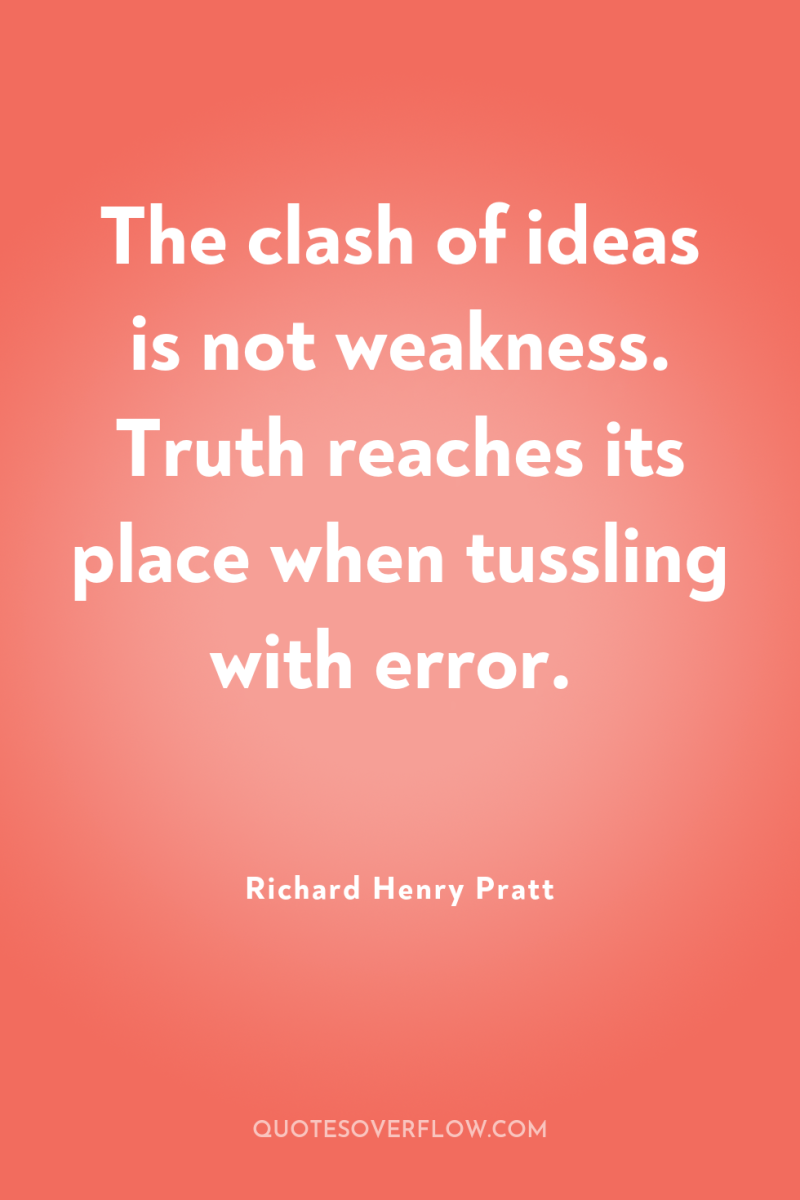
6
The clash of ideas is not weakness. Truth reaches its place when tussling with error.Richard Henry Pratt
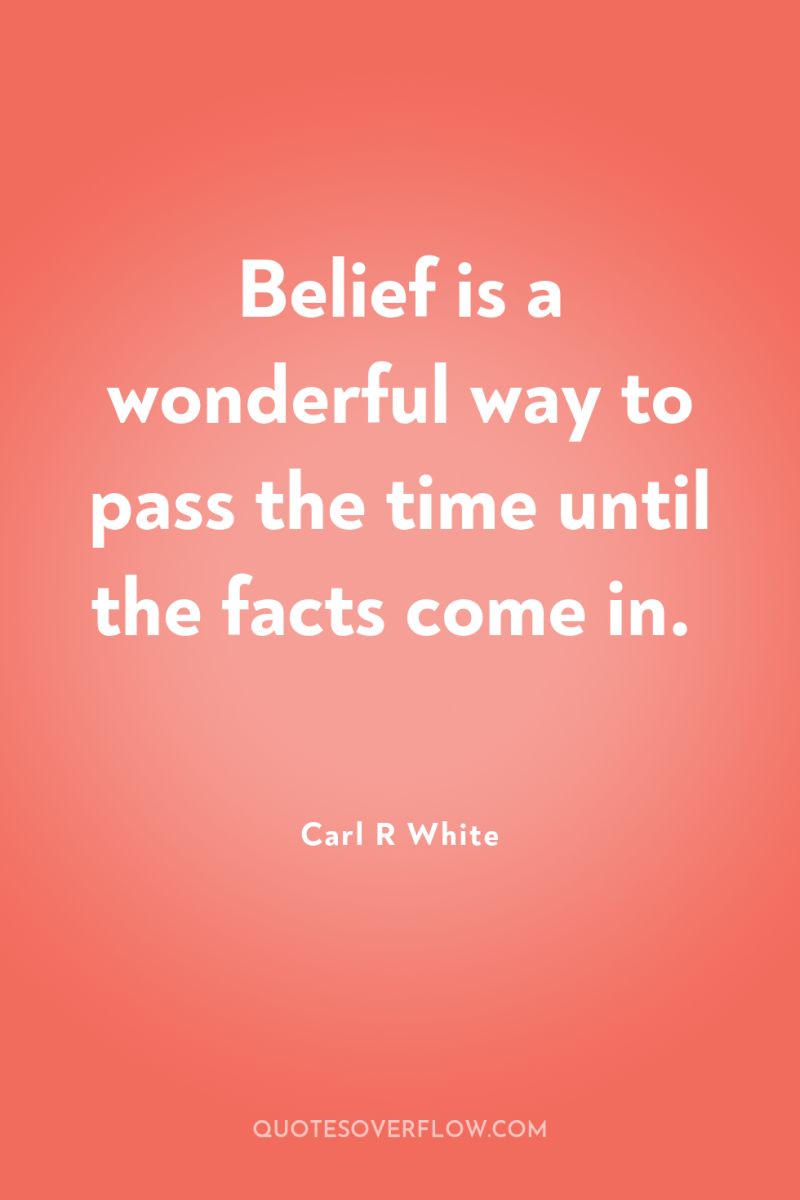
7
Belief is a wonderful way to pass the time until the facts come in.Carl R White
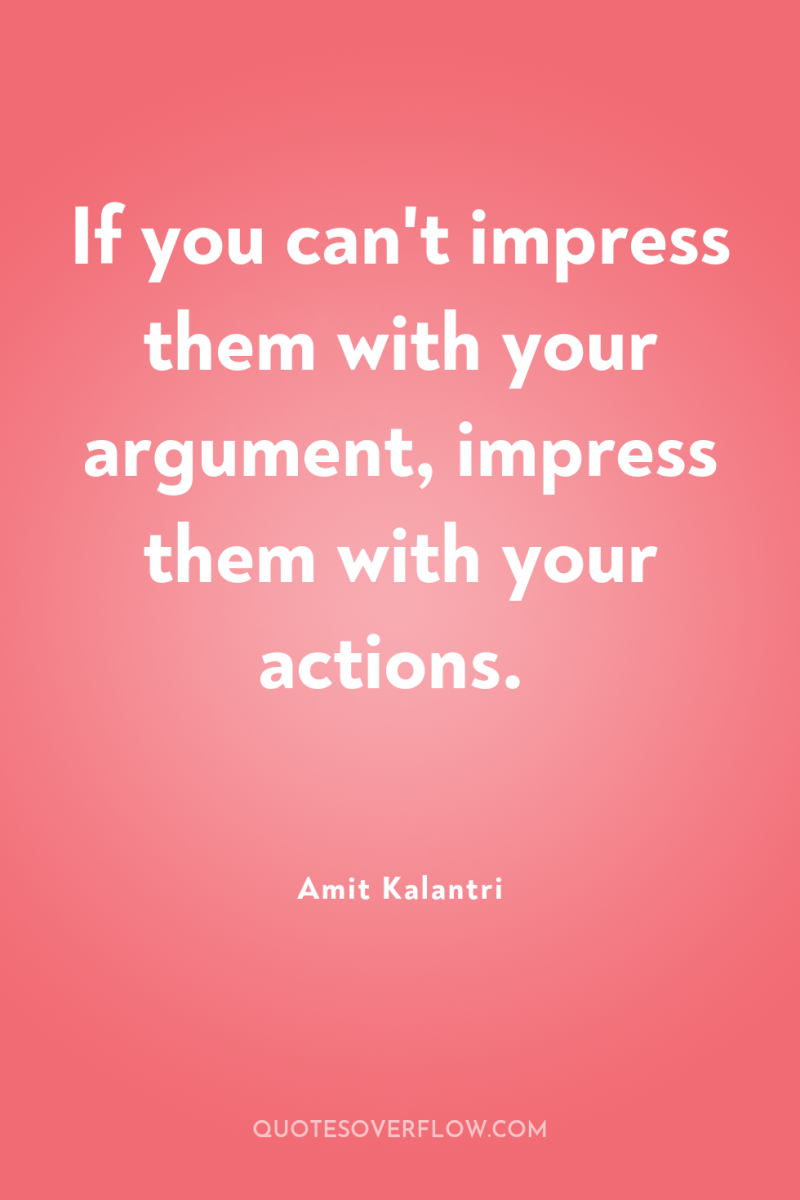
8
If you can't impress them with your argument, impress them with your actions.Amit Kalantri
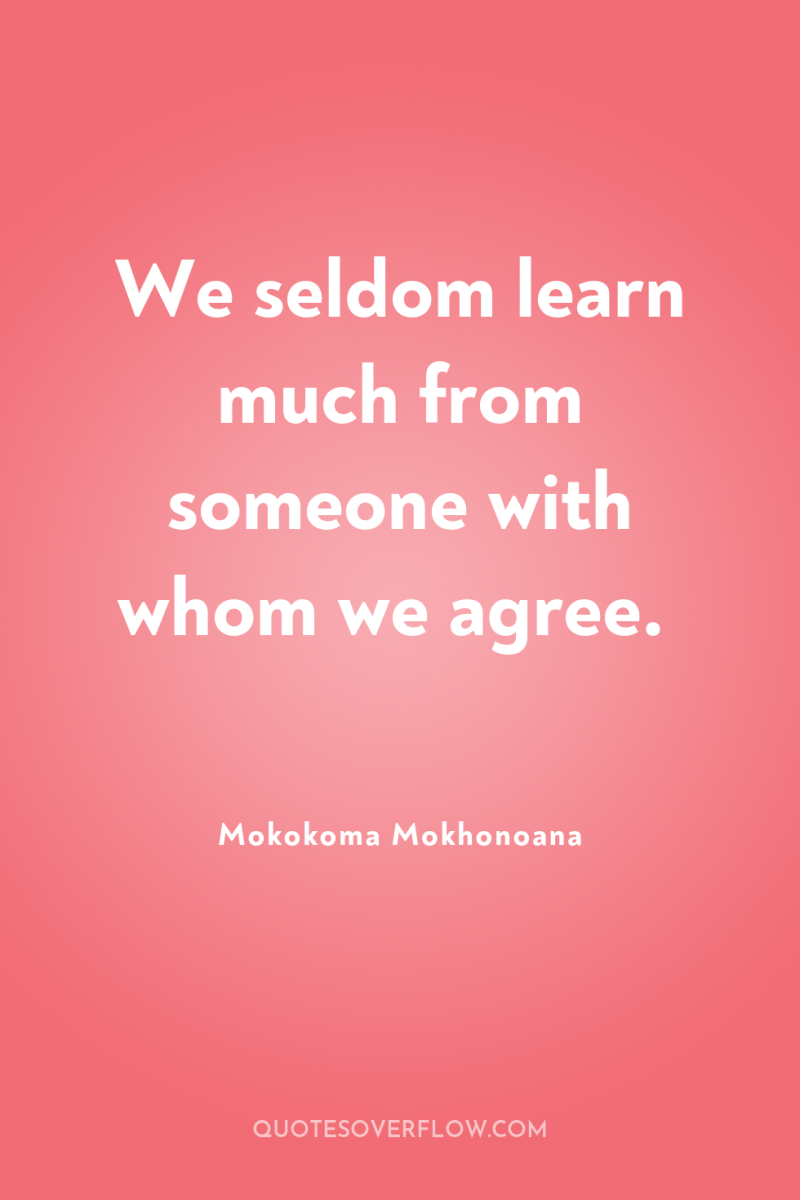
9
We seldom learn much from someone with whom we agree.Mokokoma Mokhonoana
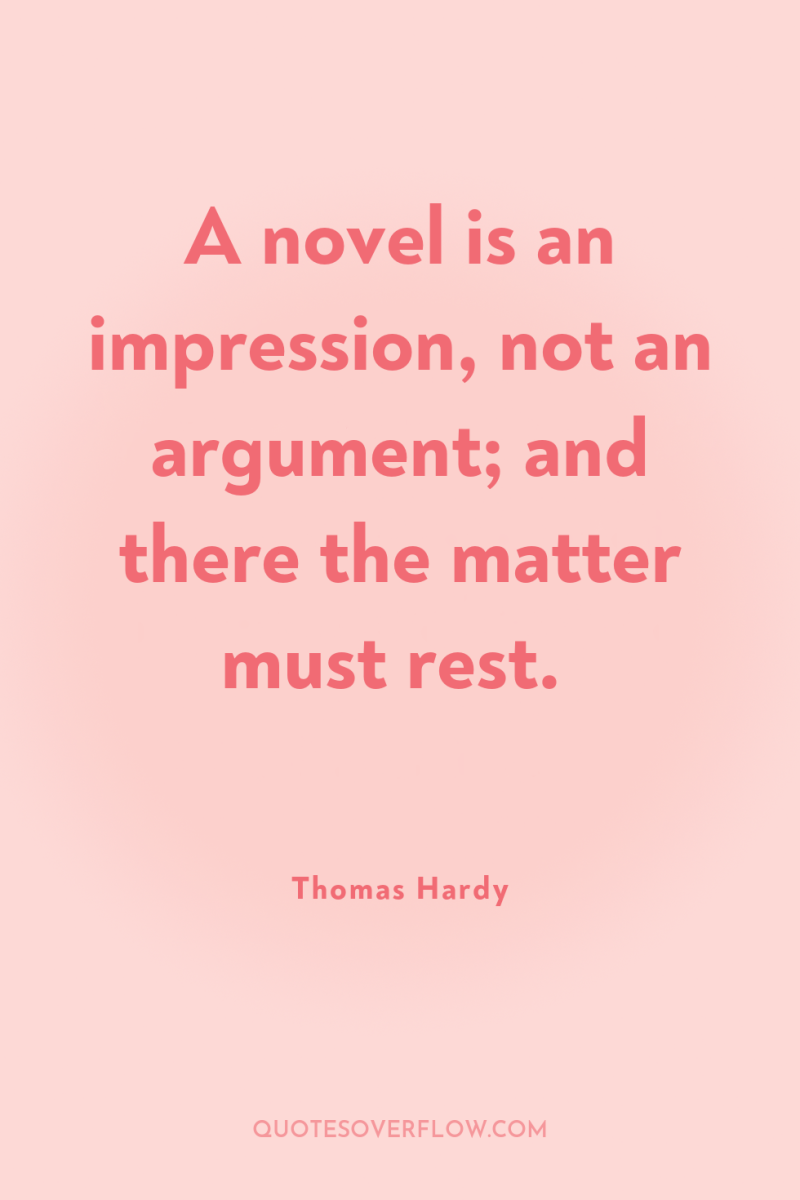
10
A novel is an impression, not an argument; and there the matter must rest.Thomas Hardy
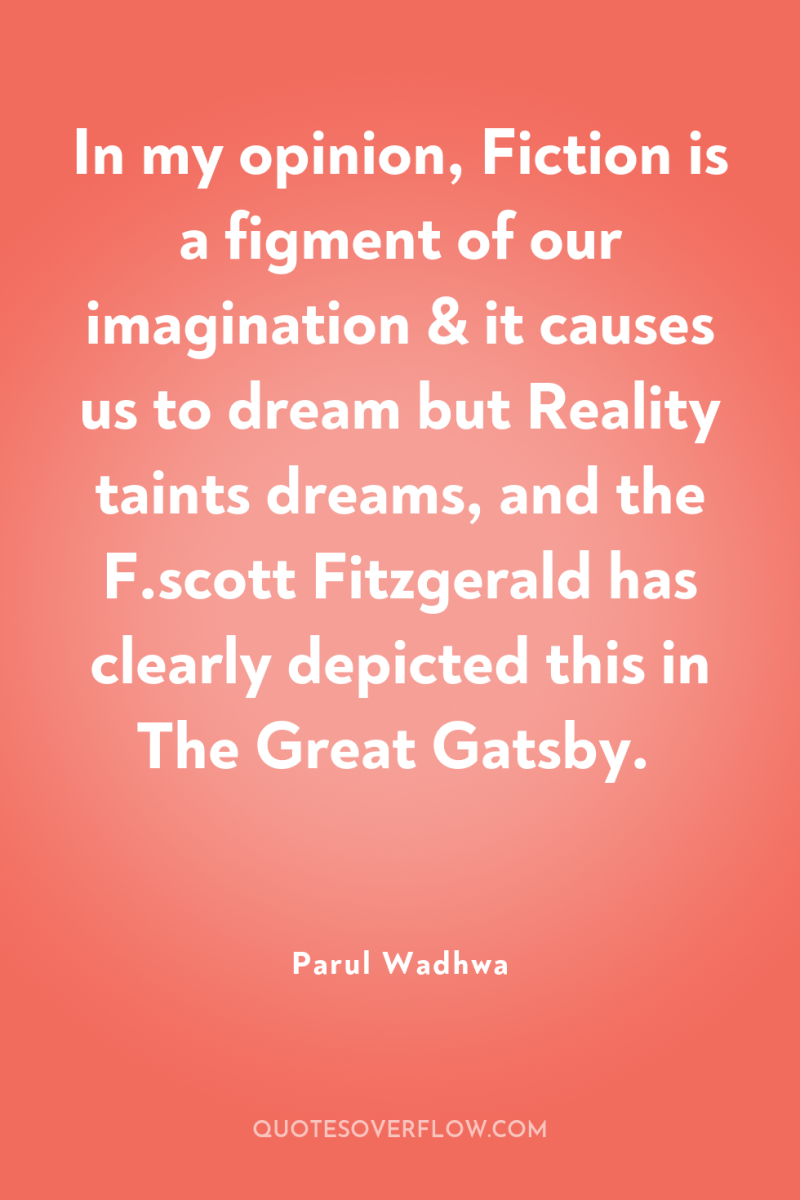
11
In my opinion, Fiction is a figment of our imagination & it causes us to dream but Reality taints dreams, and the F.scott Fitzgerald has clearly depicted this in The Great Gatsby.Parul Wadhwa
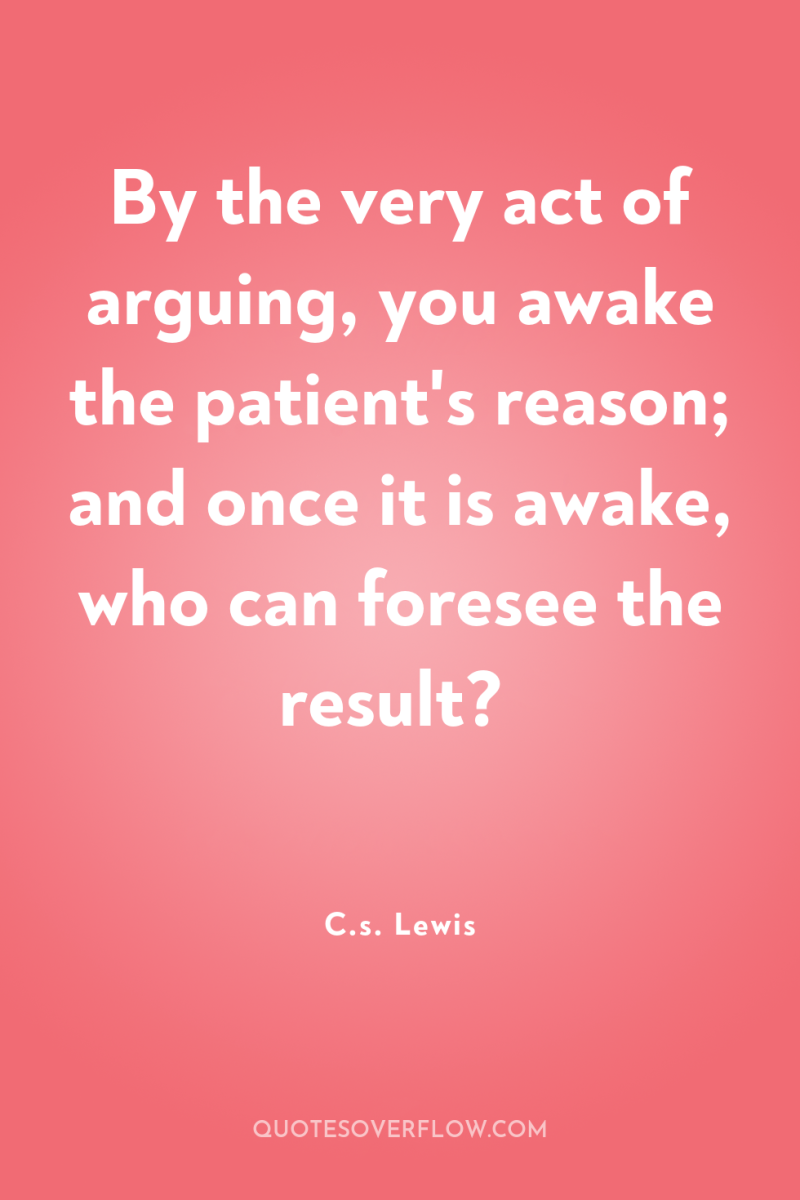
12
By the very act of arguing, you awake the patient's reason; and once it is awake, who can foresee the result?C.s. Lewis
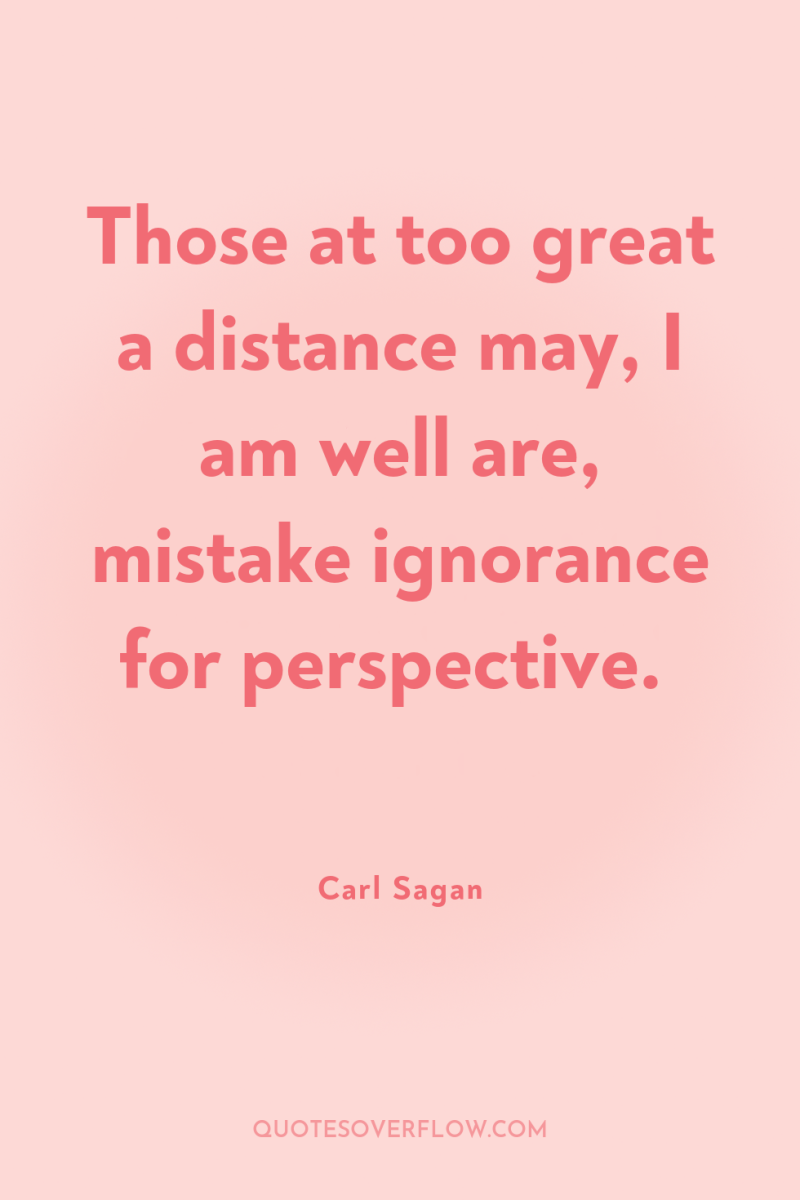
13
Those at too great a distance may, I am well are, mistake ignorance for perspective.Carl Sagan

14
It is always healthy to be honest.Amit Kalantri
15
The only sort of pride that may serve a man well on that rarest occasion is his hatred of being wrong. It keeps his mouth shut, his ears open, and his research extensive. And yet this is also the deadliest because when he is in fact proven wrong, he absolutely refuses to acknowledge it. It then keeps his mouth open, his ears shut, and his research inexistent.Criss Jami
16
Some of the most polished ideas are discovered through healthy, honest debate, so if you don't argue with yourself every once in a while, other people will gladly point out if, in any sense, you missed a spot.Criss Jami
17
If the surprise outcome of the recent UK referendum - on whether to leave or remain in the European Union - teaches us anything, it is that supposedly worthy displays of democracy in action can actually do more harm than good. Witness a nation now more divided; an intergenerational schism in the making; both a governing and opposition party torn to shreds from the inside; infinitely more complex issues raised than satisfactory solutions provided. It begs the question 'Was it really all worth it' ? .Alex Morritt
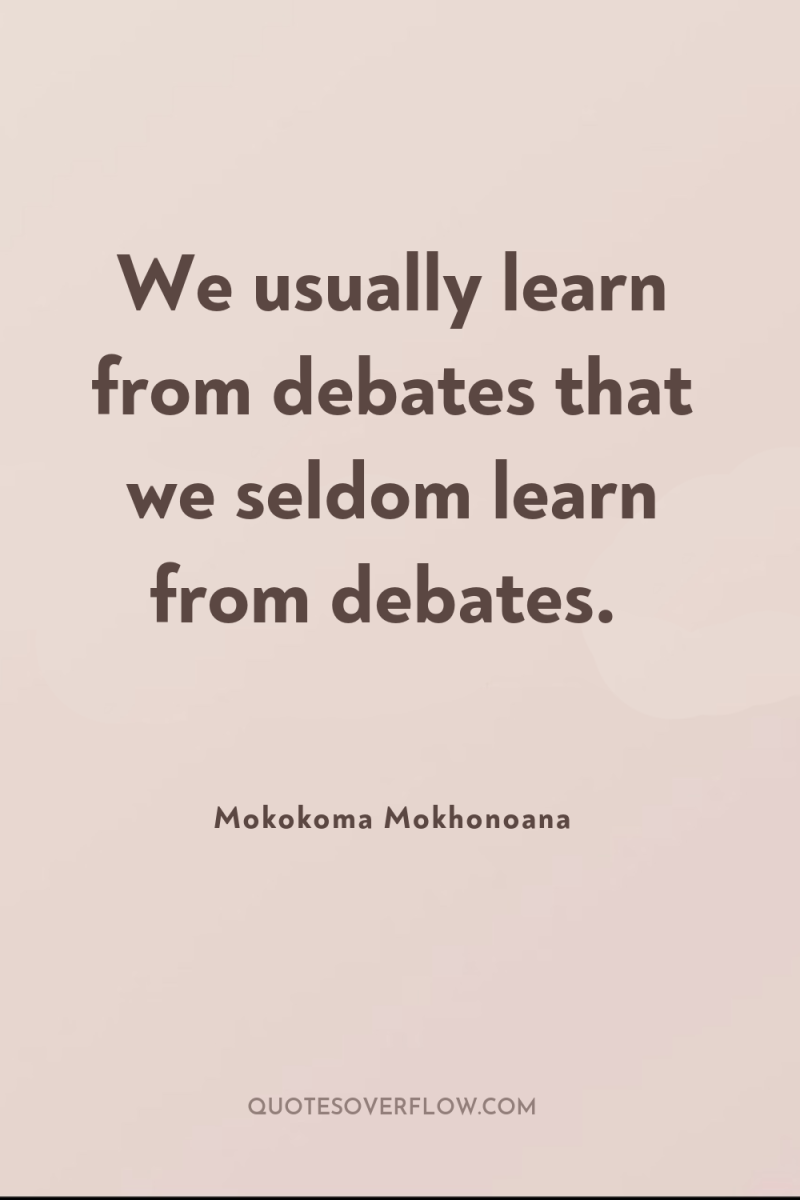
18
We usually learn from debates that we seldom learn from debates.Mokokoma Mokhonoana
19
Has it ever struck you as odd, or unfortunate, that today, when the proportion of literacy is higher than it has ever been, people should have become susceptible to the influence of advertisement and mass propaganda to an extent hitherto unheard of and unimagined?.. Have you ever, in listening to a debate among adult and presumably responsible people, been fretted by the extraordinary inability of the average debater to speak to the question, or to meet and refute the arguments of speakers on the other side?.. And when you think of this, and think that most of our public affairs are settled by debates and committees, have you ever felt a certain sinking of the heart?.. Is not the great defect of our education today---a defect traceable through all the disquieting symptoms of trouble that I have mentioned---that although we often succeed in teaching our pupils "subjects, " we fail lamentably on the whole in teaching them how to think: they learn everything, except the art of learning. .Dorothy L. Sayers

20
Speak with caution. Even if someone forgives harsh words you've spoken, they may be too hurt to ever forget them. Don't leave a legacy of pain and regret of things you never should have said.Germany Kent
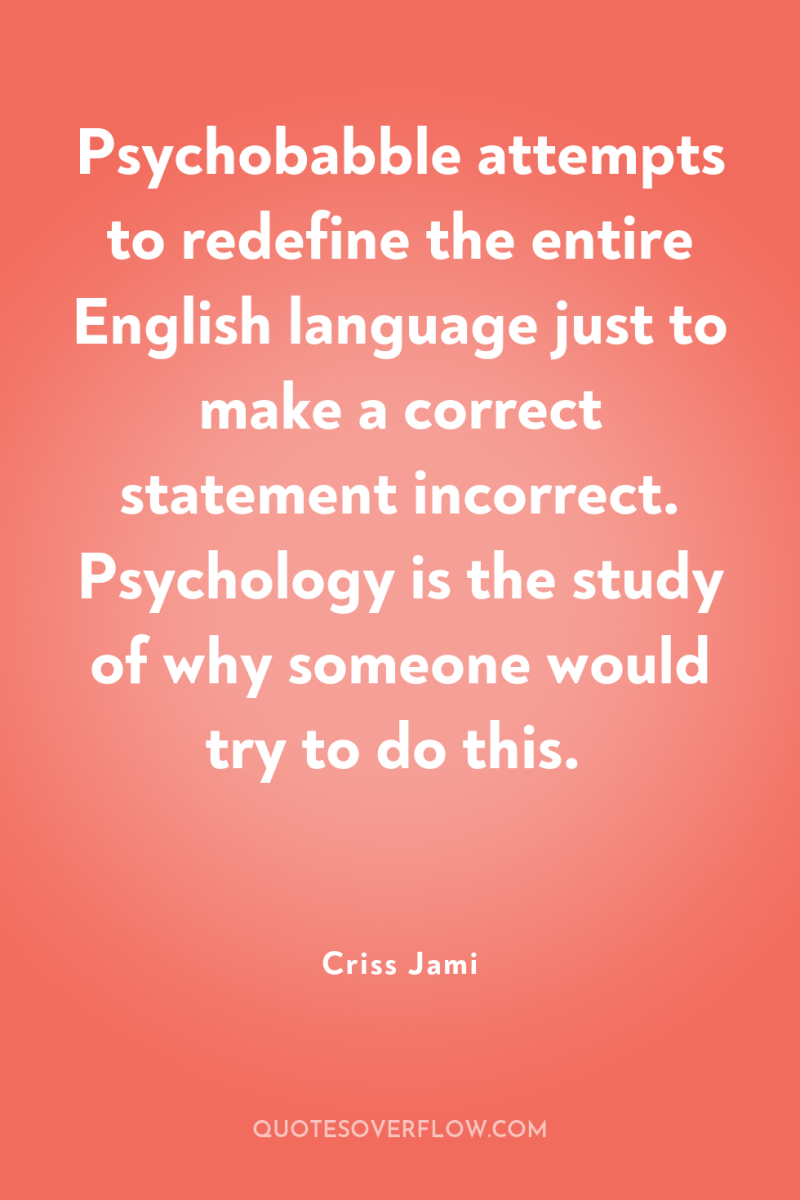
21
Psychobabble attempts to redefine the entire English language just to make a correct statement incorrect. Psychology is the study of why someone would try to do this.Criss Jami
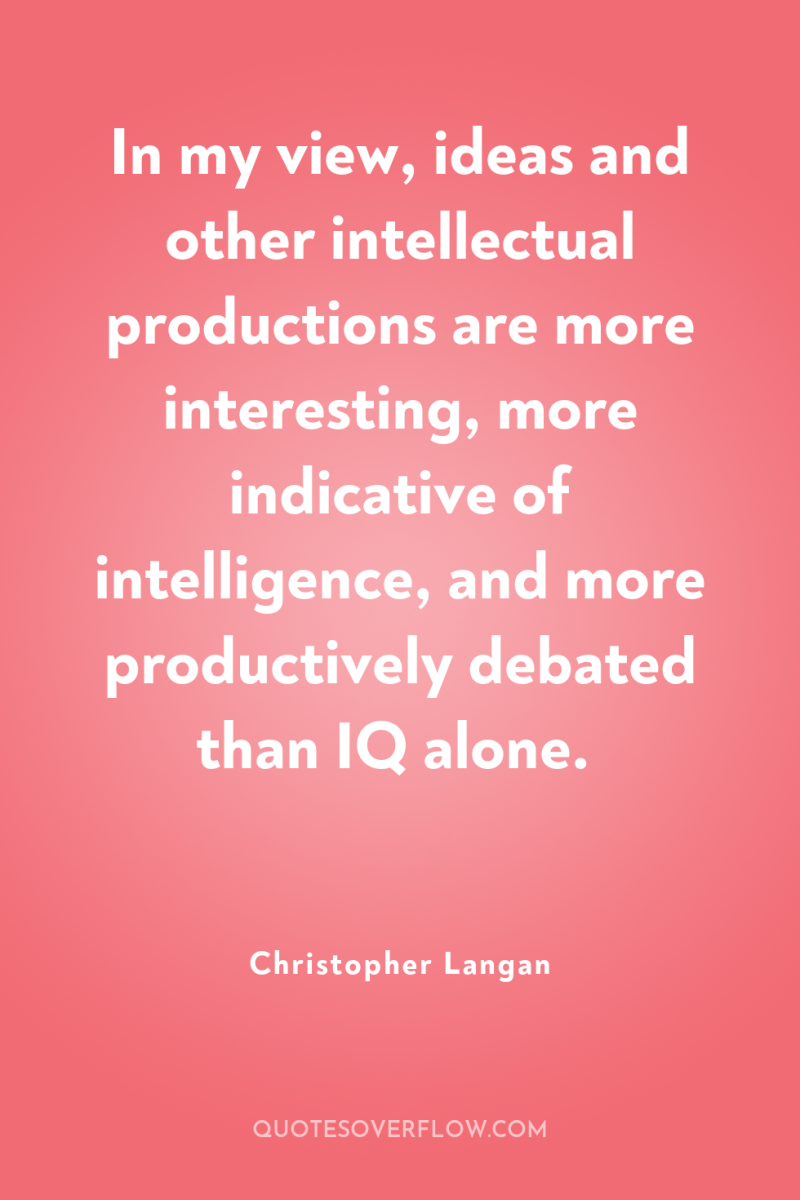
22
In my view, ideas and other intellectual productions are more interesting, more indicative of intelligence, and more productively debated than IQ alone.Christopher Langan
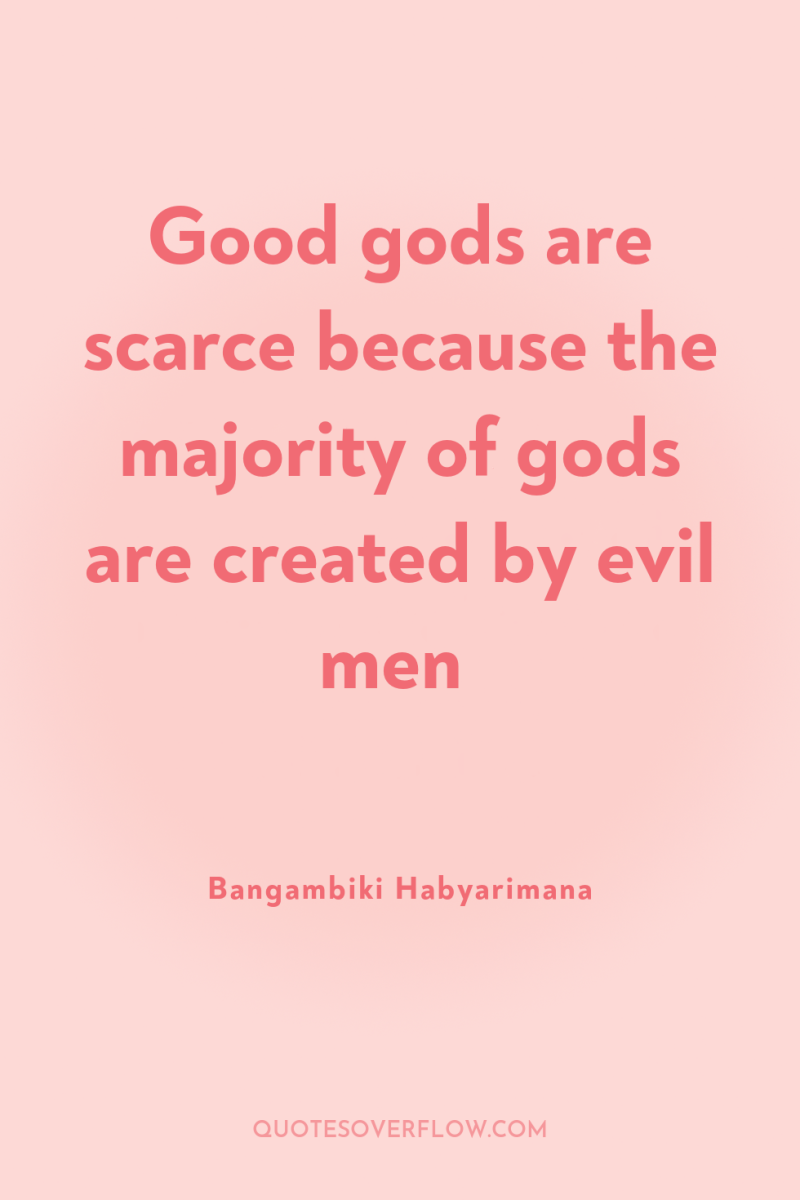
23
Good gods are scarce because the majority of gods are created by evil menBangambiki Habyarimana
24
Why do religious believers hate unbelievers? The feel threatened by them, they feel besieged by them. Religions consider themselves as separate tribes in their own rights and feel like unbelievers will one day overrun their strongholdsBangambiki Habyarimana

25
Every word that comes after "And the Lord told me... “is a pious lieBangambiki Habyarimana

26
Some people are so stiff and inhumane as the dogma's they believe inBangambiki Habyarimana
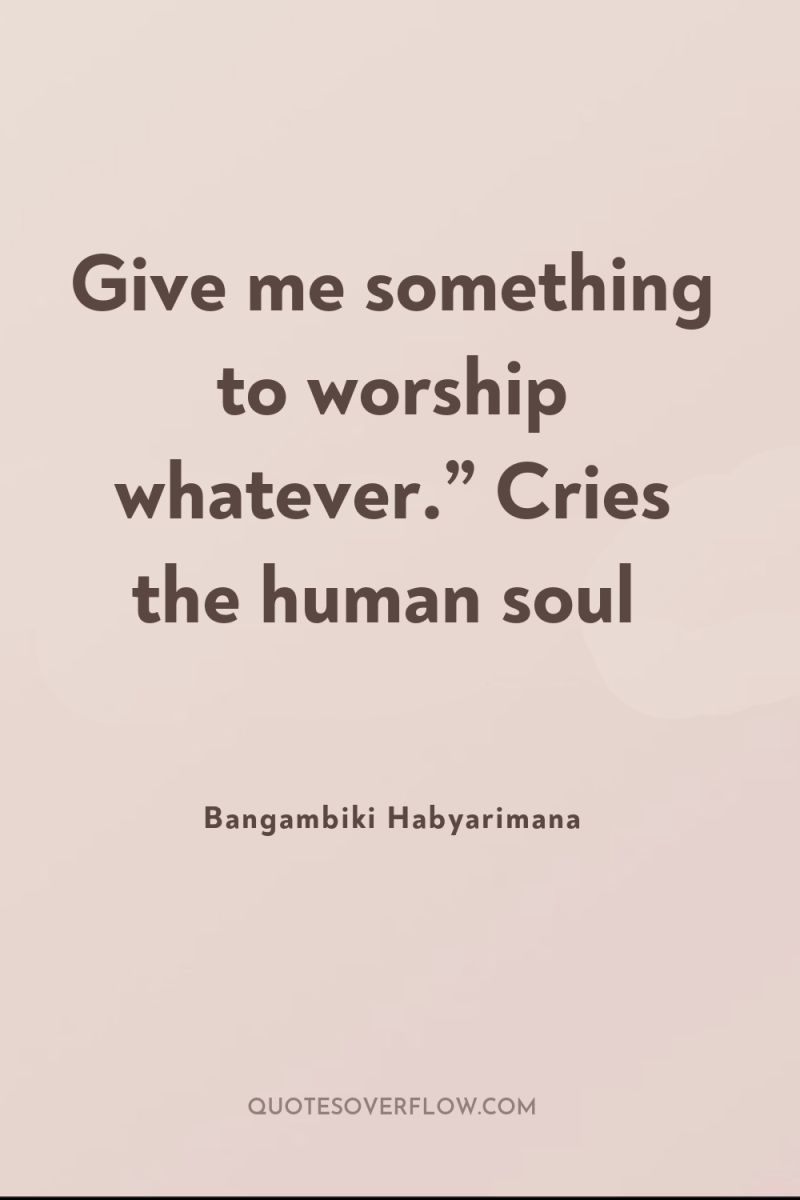
27
Give me something to worship whatever.” Cries the human soulBangambiki Habyarimana
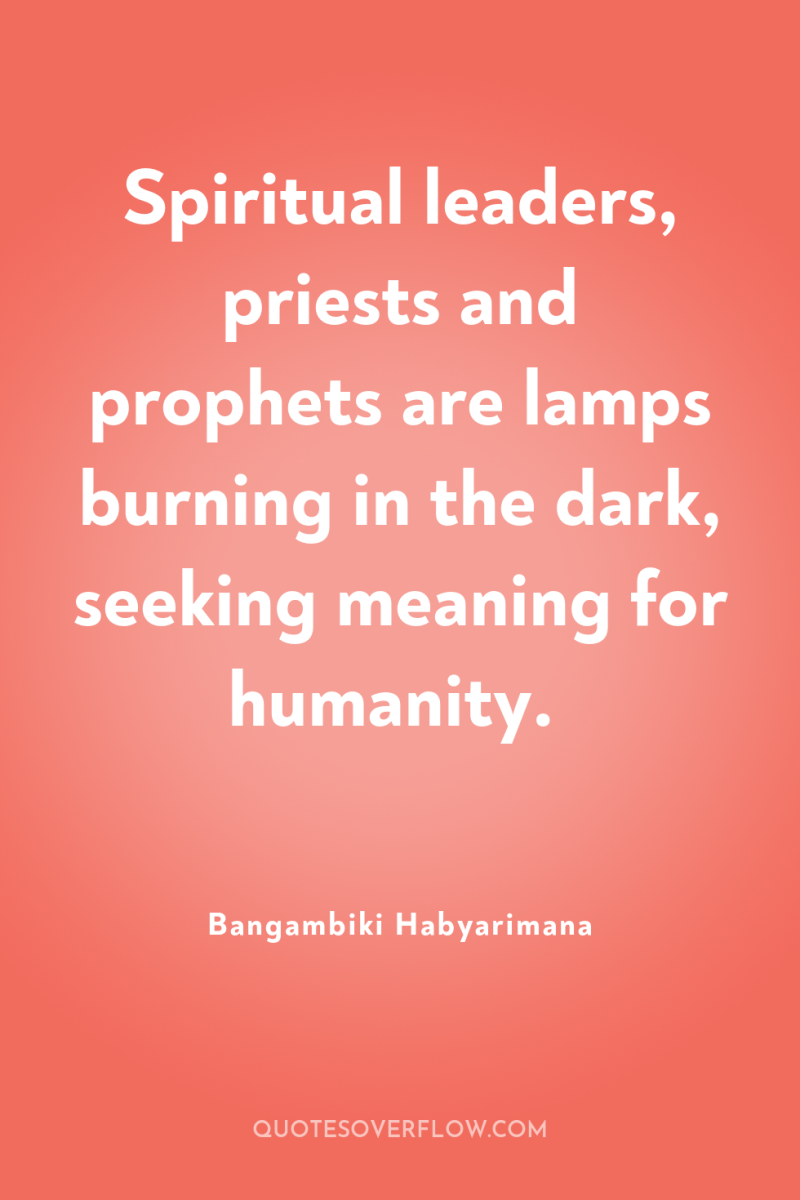
28
Spiritual leaders, priests and prophets are lamps burning in the dark, seeking meaning for humanity.Bangambiki Habyarimana
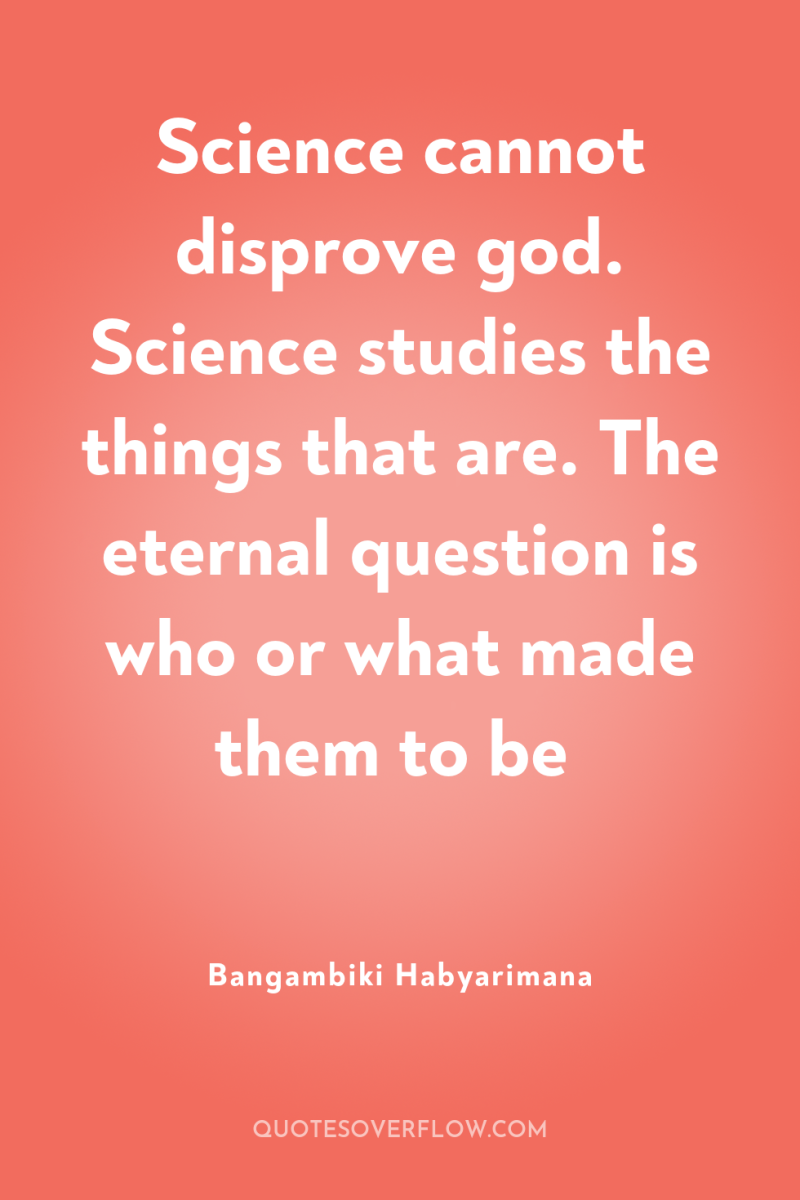
29
Science cannot disprove god. Science studies the things that are. The eternal question is who or what made them to beBangambiki Habyarimana
30
Why doesn't the pope convert to Calvinism? Why doesn't the Dalai Lama, convert to Christianity, why doesn't Billy Graham convert to Islam, Why doesn't the Ayatollahs convert to Buddhism, Why isn't Buddhism swept away? Religious leaders know that all religions are equal; they know that no one of them has the monopoly to the knowledge of God. They know that each religion is trying to find the hidden God and that no one religion can claim to have found him beyond doubt. That's why they remain where they are and respect each other.Bangambiki Habyarimana
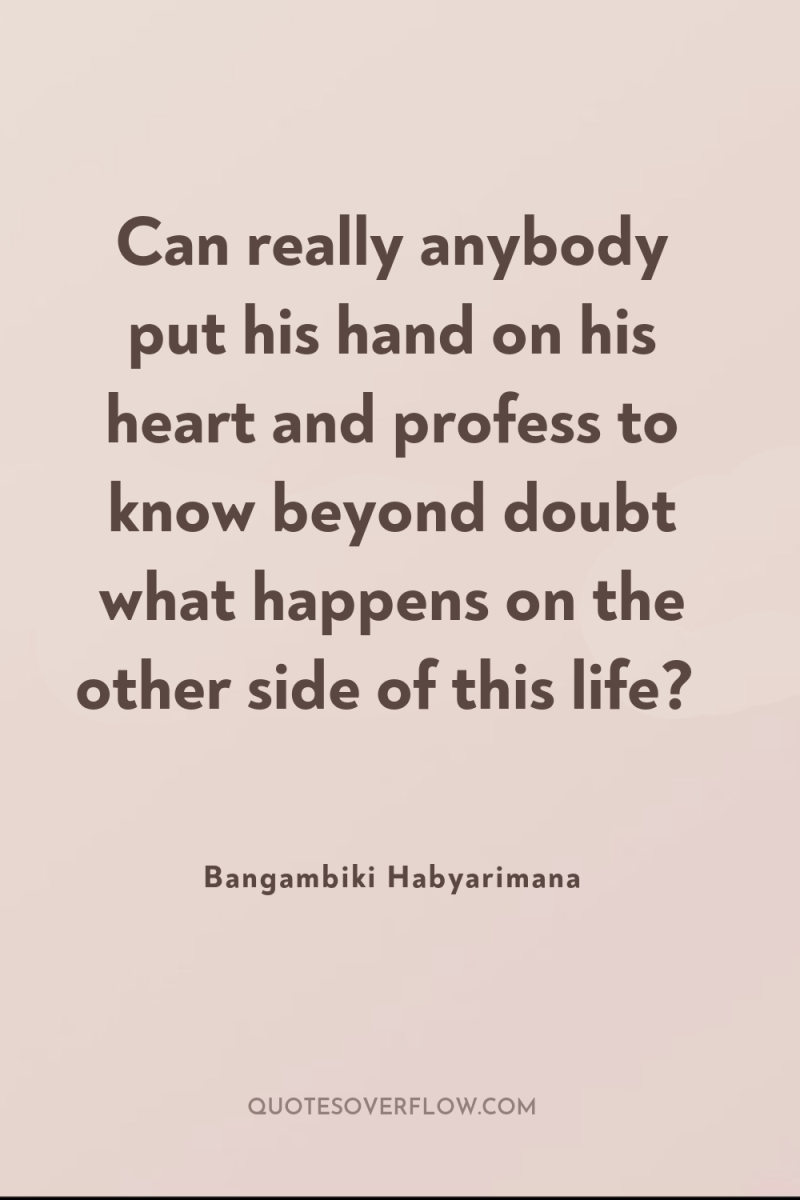
31
Can really anybody put his hand on his heart and profess to know beyond doubt what happens on the other side of this life?Bangambiki Habyarimana
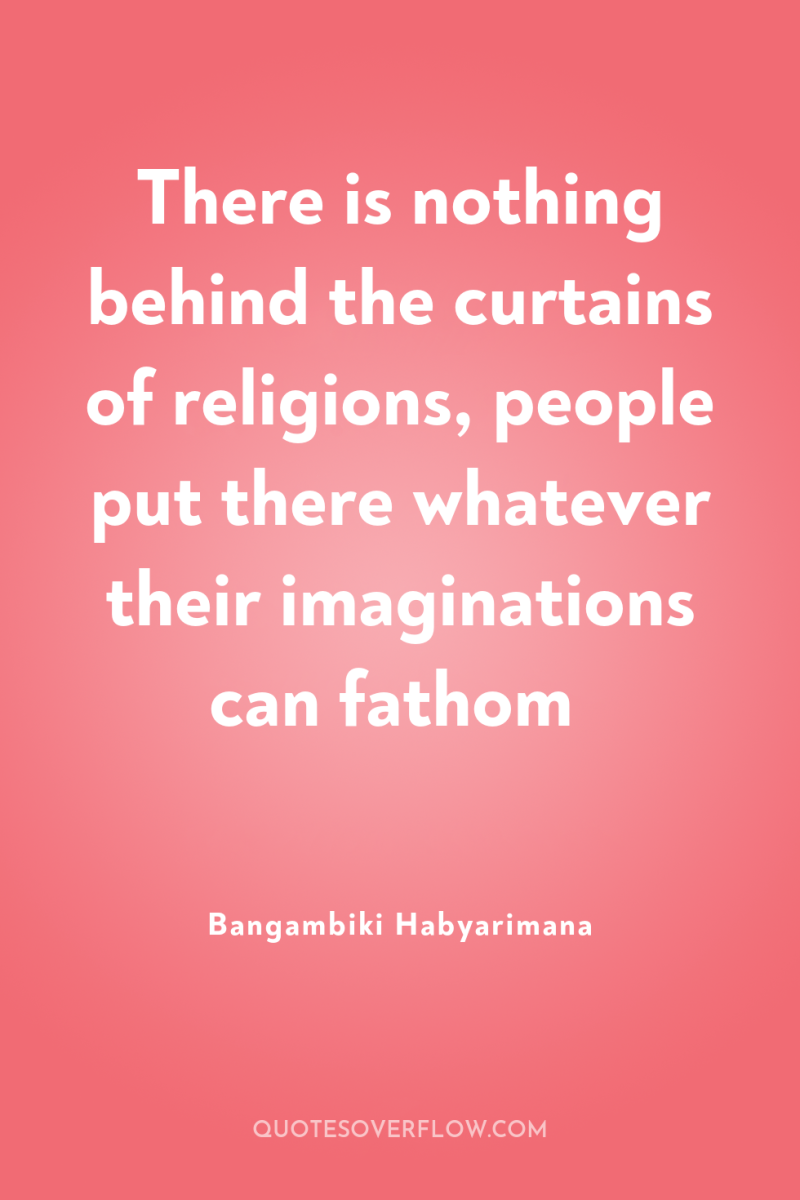
32
There is nothing behind the curtains of religions, people put there whatever their imaginations can fathomBangambiki Habyarimana
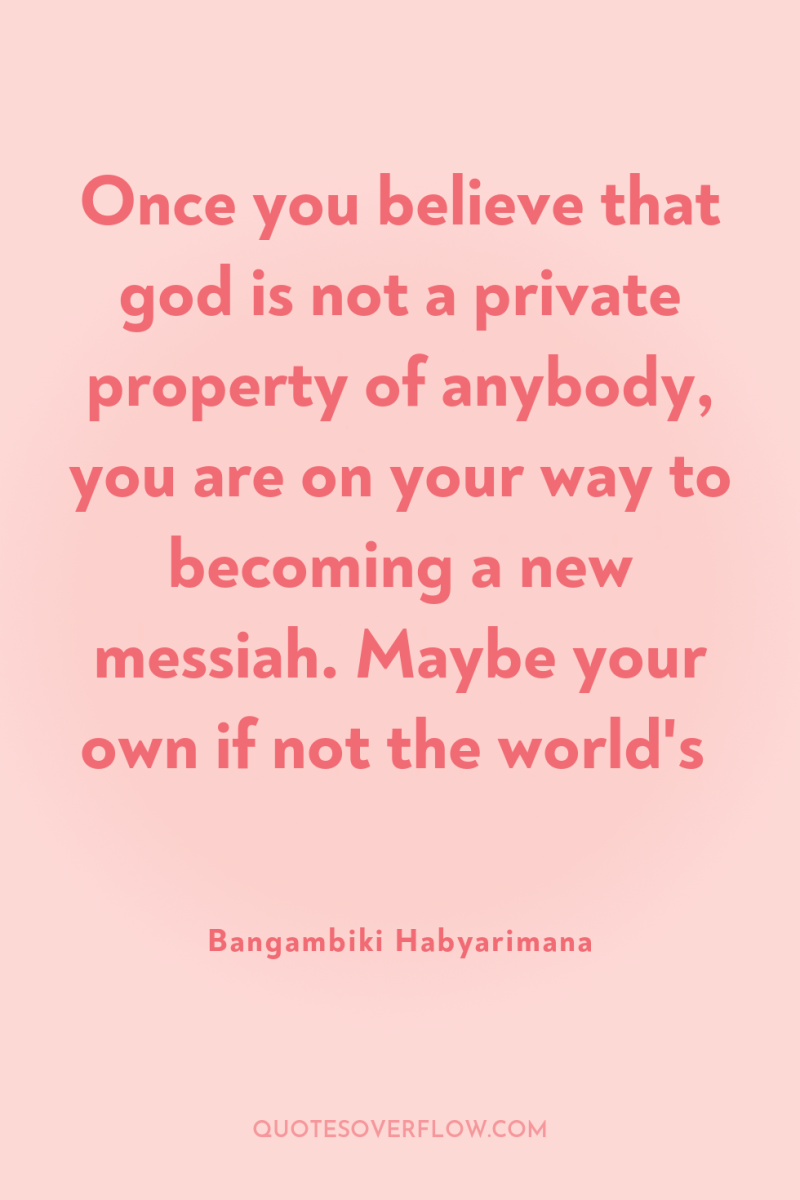
33
Once you believe that god is not a private property of anybody, you are on your way to becoming a new messiah. Maybe your own if not the world'sBangambiki Habyarimana
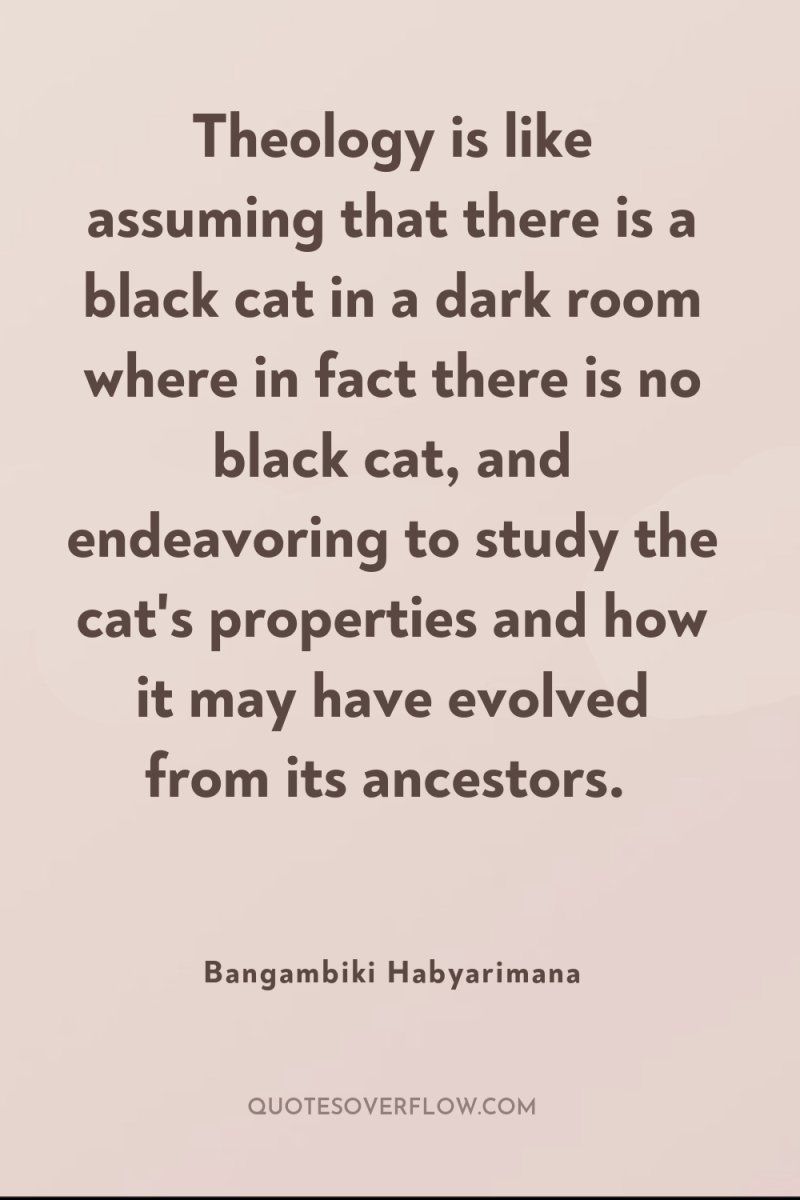
34
Theology is like assuming that there is a black cat in a dark room where in fact there is no black cat, and endeavoring to study the cat's properties and how it may have evolved from its ancestors.Bangambiki Habyarimana
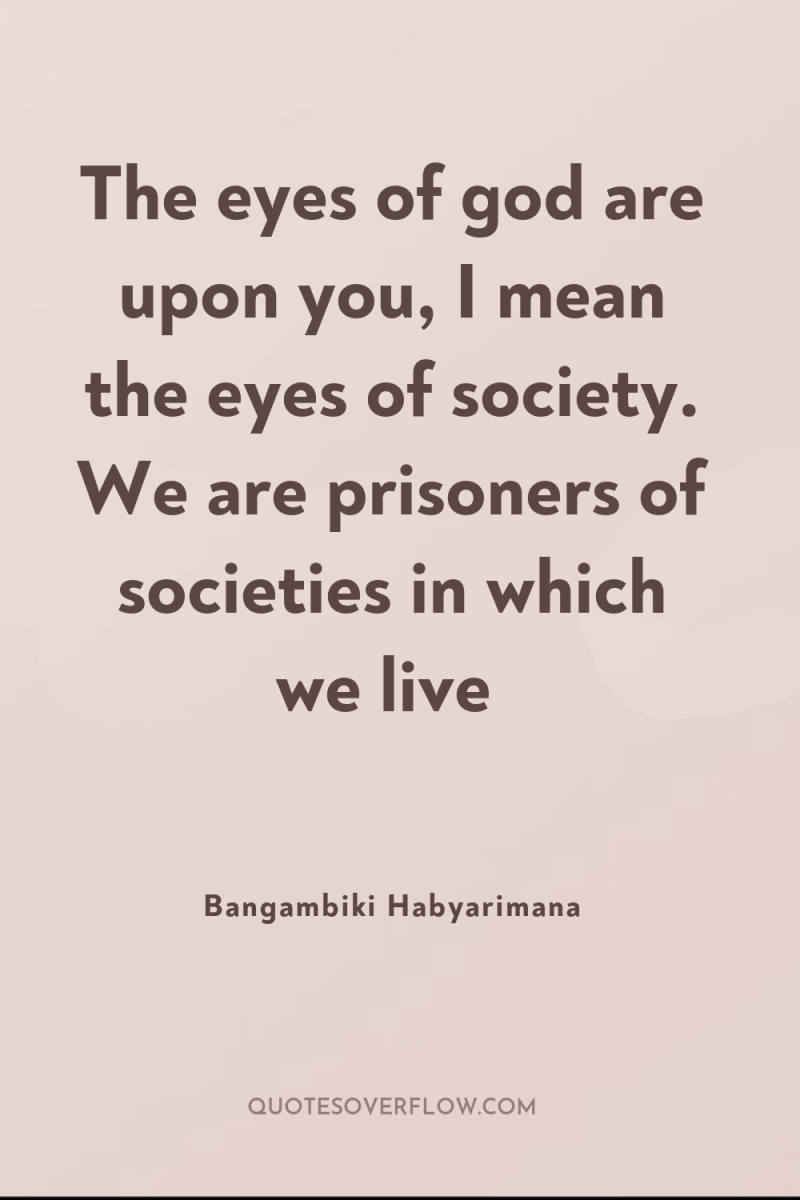
35
The eyes of god are upon you, I mean the eyes of society. We are prisoners of societies in which we liveBangambiki Habyarimana
36
You take away my golden dreams and my visions of paradise, in its place you wake me up and hand me your reasons and facts and crude reality. You have ruined my life. If I commit murder or hang myself, let the god I used to pray to repay you in full.Bangambiki Habyarimana
37
If you believe that God is good and that He loves you without regard to whom you are or what you do, you will worship Him wholeheartedly. You will praise him with thanksgiving. If you believe He is angry against you, you will come to him with fear and trying to appease his anger. And you don't know when His anger will be over. Such a god keeps you in a perpetual psychological anguish. That is the typical kind of god we usually worship. That is the typical god approved by authority. .Bangambiki Habyarimana
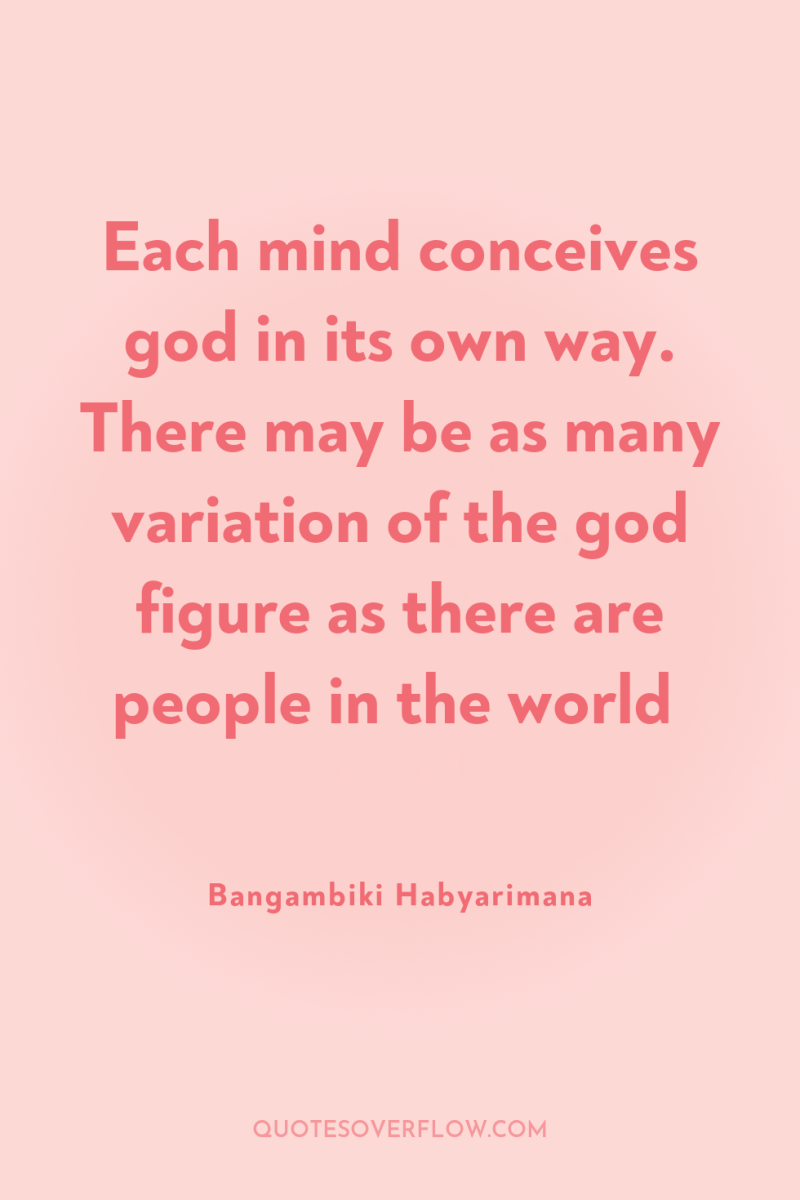
38
Each mind conceives god in its own way. There may be as many variation of the god figure as there are people in the worldBangambiki Habyarimana
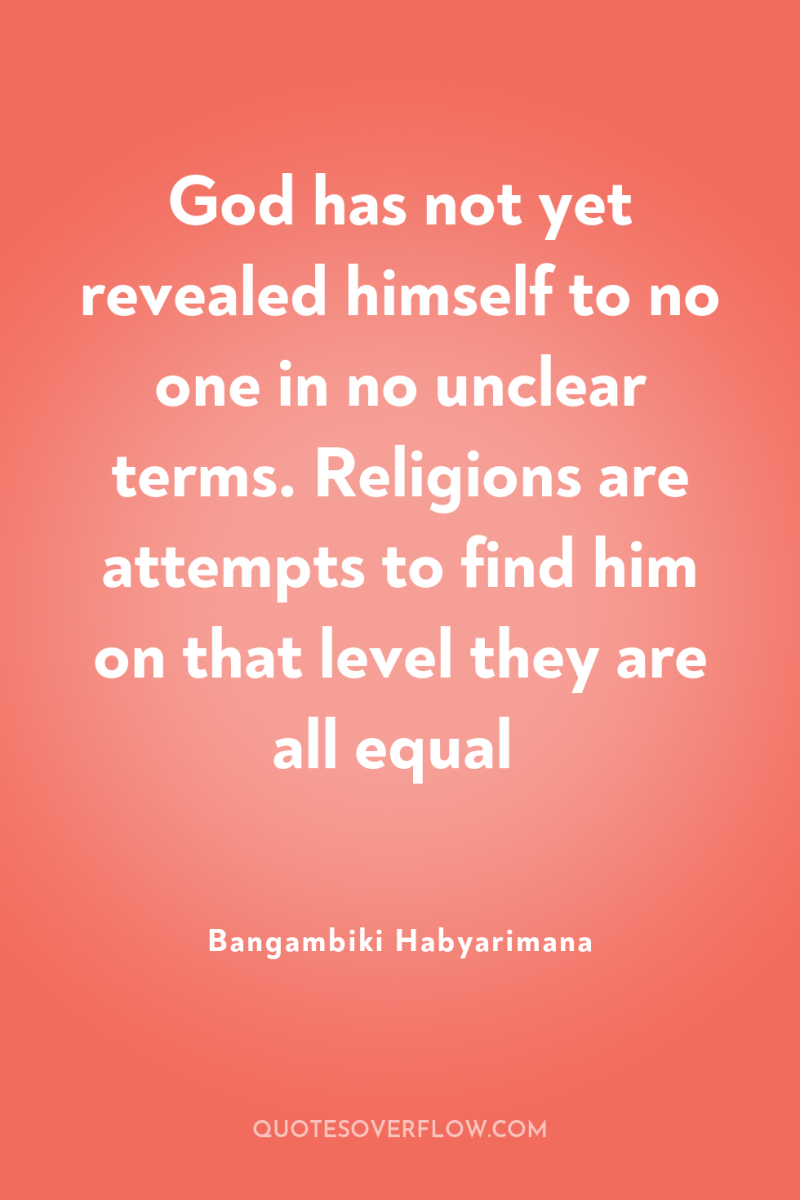
39
God has not yet revealed himself to no one in no unclear terms. Religions are attempts to find him on that level they are all equalBangambiki Habyarimana
40
What is needed is not that a religion be true, meaning that what it claims exist beyond the ink it is written with in a holy book. That is hard to prove. What is important is that a religion be a good system to help us mere mortal deal with our short and troubled life in the universe. Whether what we hope for in the afterlife materializes or not is not important, what is important is that we believe it will materialize and that gives us hope. .Bangambiki Habyarimana
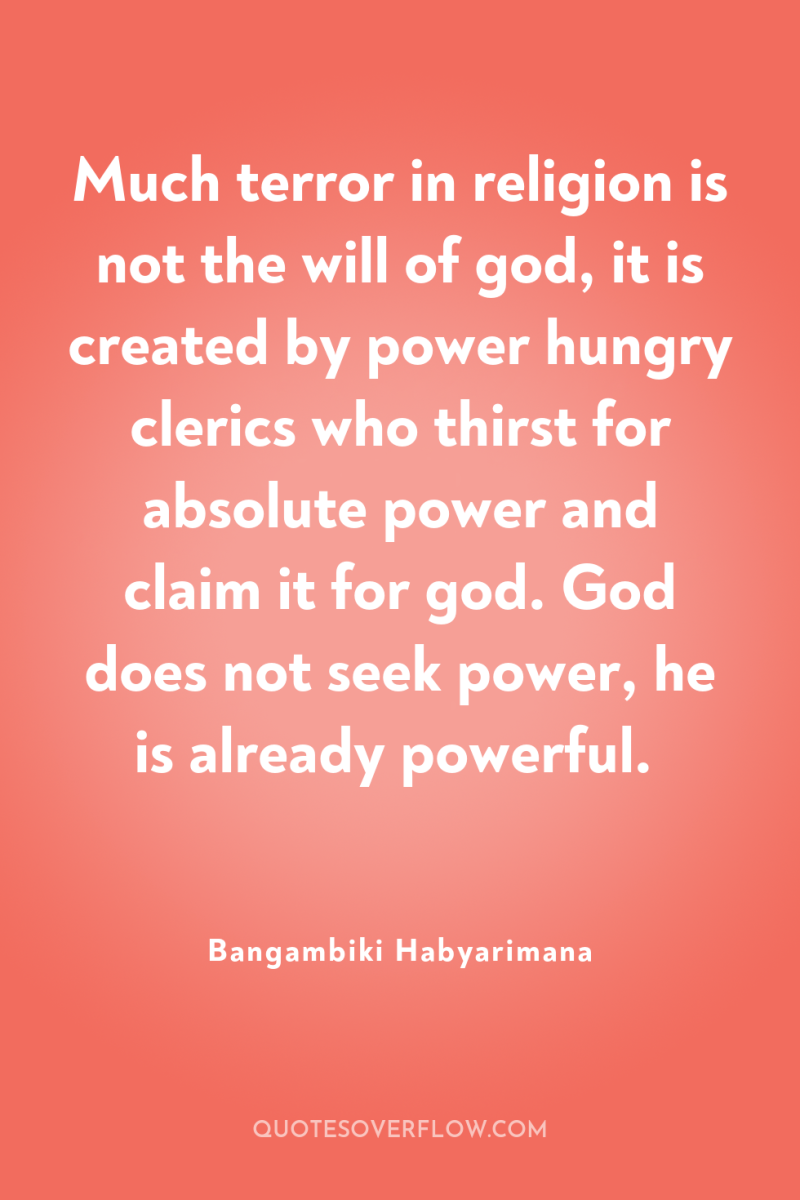
41
Much terror in religion is not the will of god, it is created by power hungry clerics who thirst for absolute power and claim it for god. God does not seek power, he is already powerful.Bangambiki Habyarimana

42
No one knows what god thinks of anything. He only knows and no one can claim to penetrate into his mysteries. Those who do that are liars and must be avoided at all costsBangambiki Habyarimana
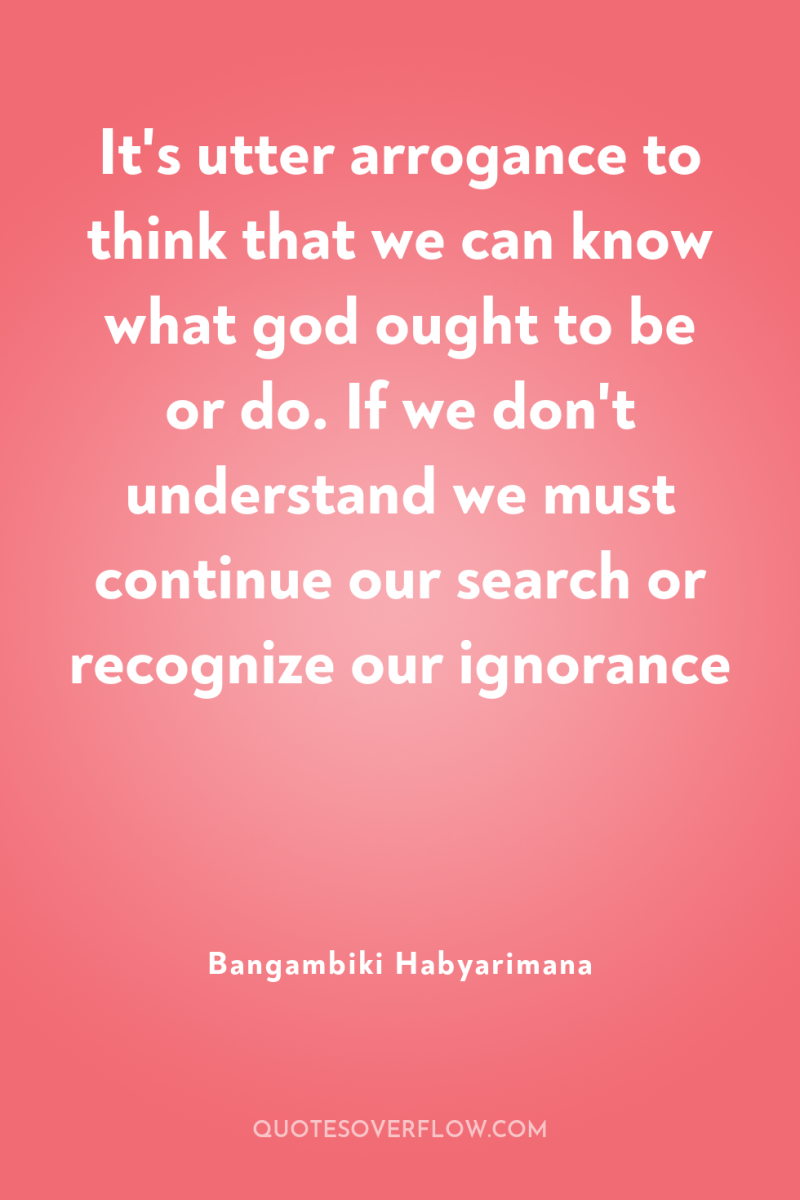
43
It's utter arrogance to think that we can know what god ought to be or do. If we don't understand we must continue our search or recognize our ignoranceBangambiki Habyarimana
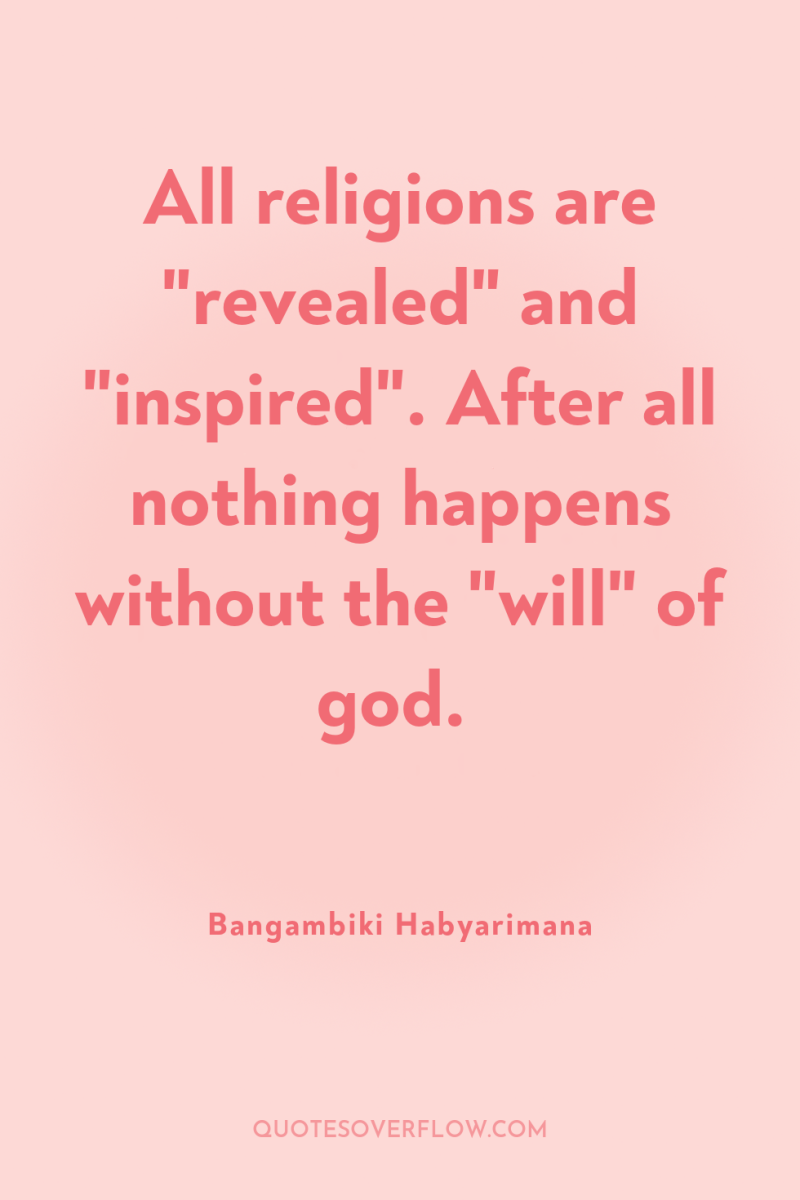
44
All religions are "revealed" and "inspired". After all nothing happens without the "will" of god.Bangambiki Habyarimana
45
Don't create unbelief or doubt in people's minds. When you do so you ruin their lives and you have nothing to give them in its place. It's ok if people delude themselves those delusions keep their day running.Bangambiki Habyarimana
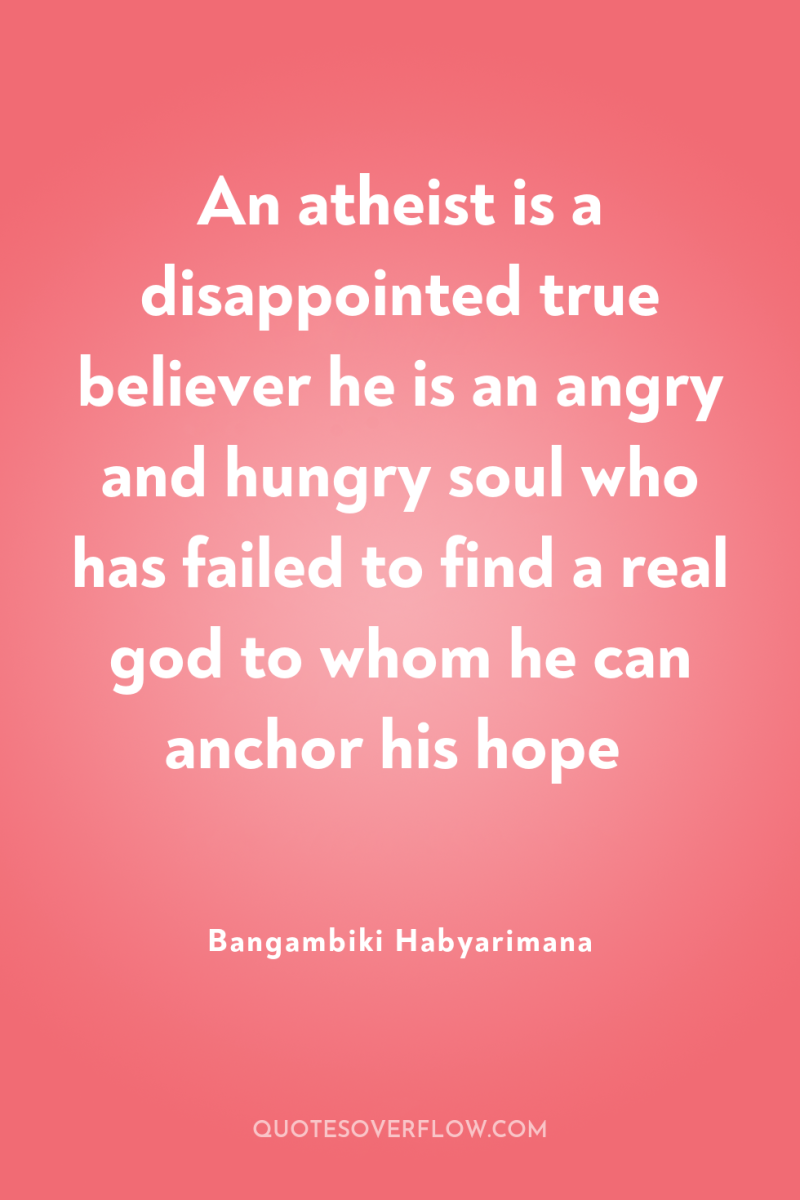
46
An atheist is a disappointed true believer he is an angry and hungry soul who has failed to find a real god to whom he can anchor his hopeBangambiki Habyarimana
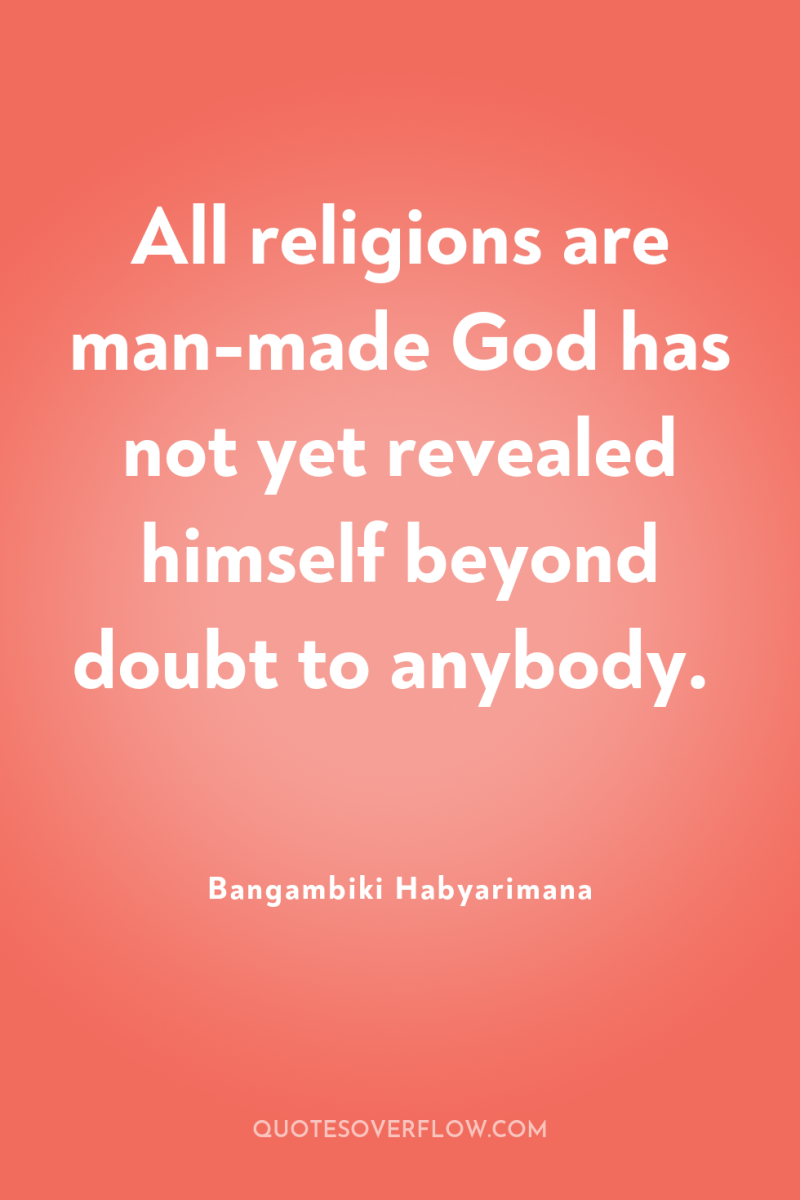
47
All religions are man-made God has not yet revealed himself beyond doubt to anybody.Bangambiki Habyarimana
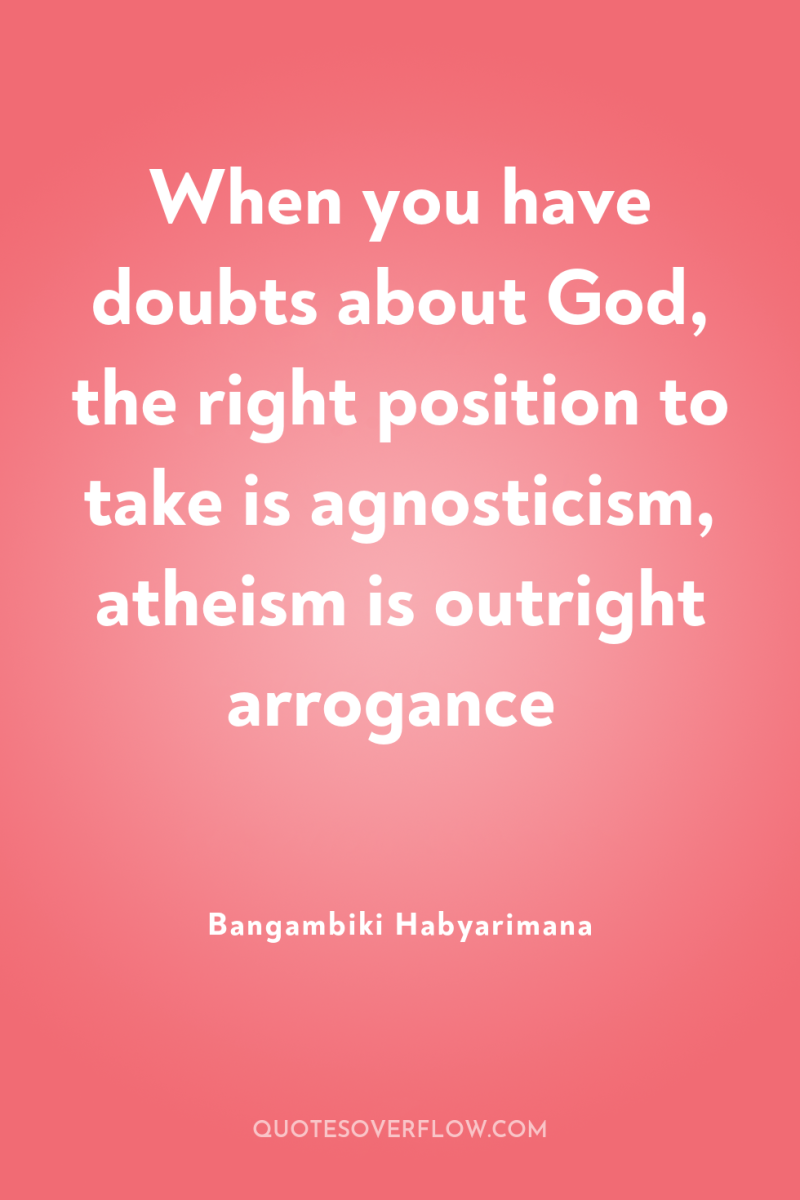
48
When you have doubts about God, the right position to take is agnosticism, atheism is outright arroganceBangambiki Habyarimana
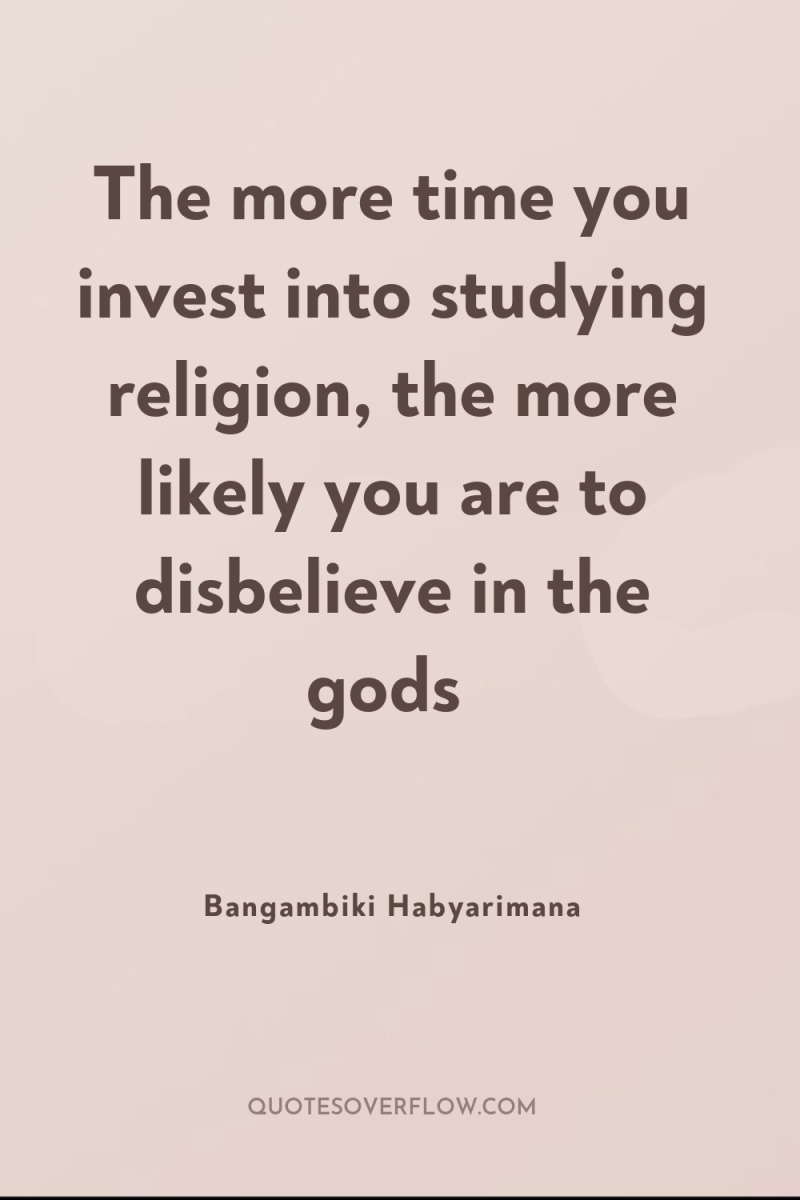
49
The more time you invest into studying religion, the more likely you are to disbelieve in the godsBangambiki Habyarimana
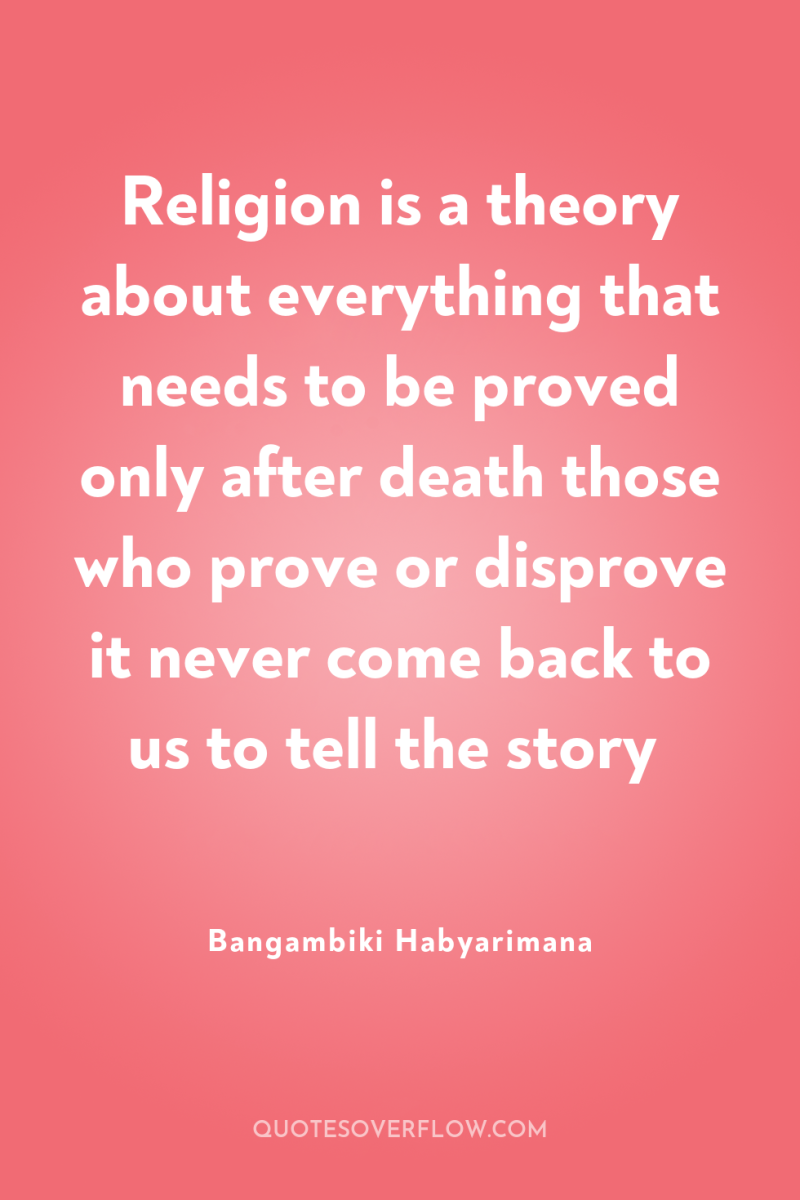
50
Religion is a theory about everything that needs to be proved only after death those who prove or disprove it never come back to us to tell the storyBangambiki Habyarimana
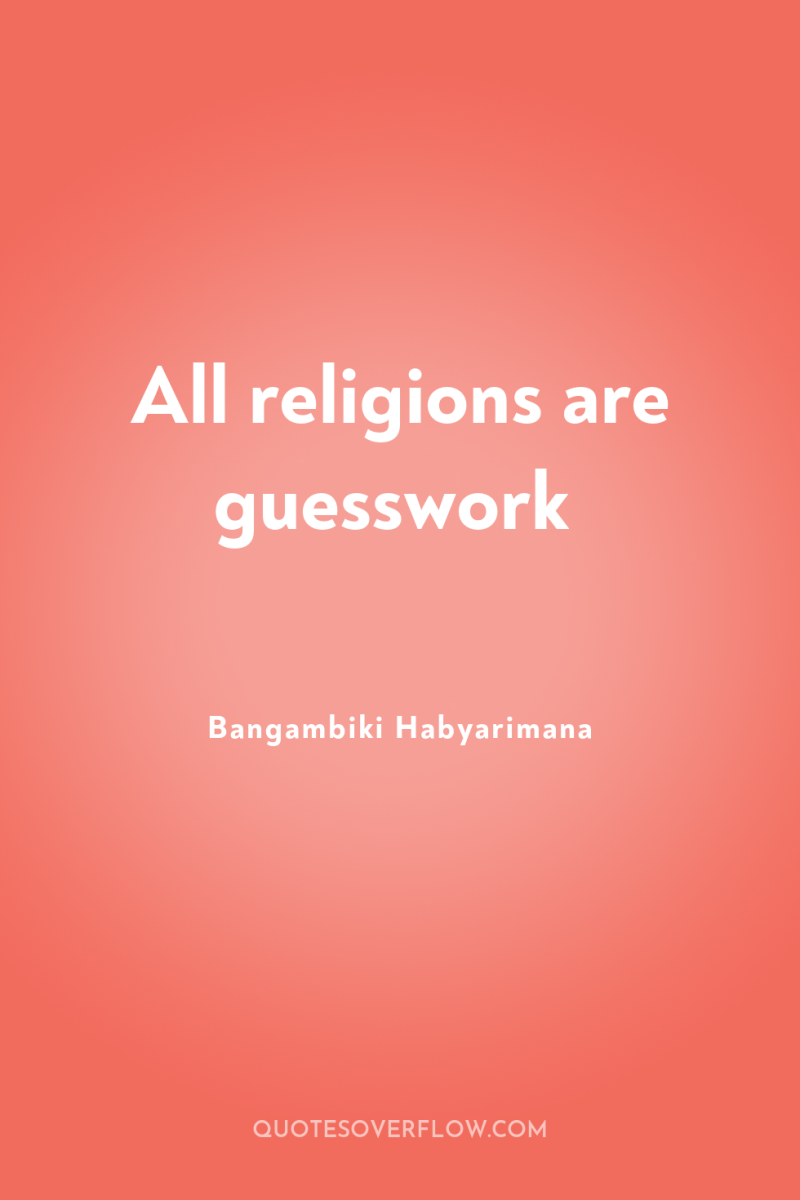
51
All religions are guessworkBangambiki Habyarimana
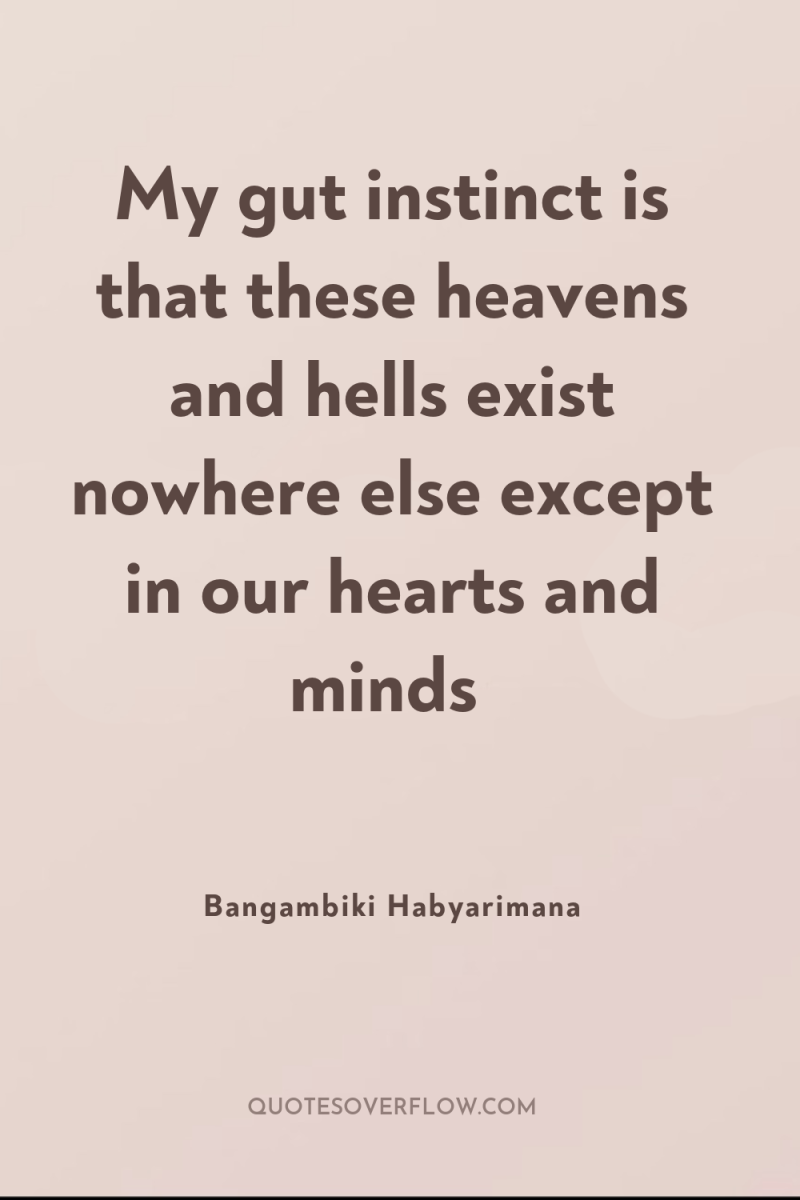
52
My gut instinct is that these heavens and hells exist nowhere else except in our hearts and mindsBangambiki Habyarimana

53
Don’t curse the gods you will feel shame when you have to call on them for helpBangambiki Habyarimana

54
God is powerful. Even those who claim not to believe in him fear him. Though their mouths may confess to disbelieve in him, their hearts yearn for him.Bangambiki Habyarimana
55
All atheists will go to heaven. If god exists, not believing in him does not take him away and he cannot justly condemn those who seek him earnestly and cannot find him. He would even reward their earnest search for him.Bangambiki Habyarimana

56
He is an atheist anyone who does not believe in my god and the wrath of god is upon him; I am in my right to meet that wrath on him, " thunders the fanaticBangambiki Habyarimana

57
You can't have it both ways. Either you believe in my god or you go to hellBangambiki Habyarimana
58
Atheists are the most honest of the human race. These people are unable to live a double life; they are unable to lie to themselves. Of course it's an evolutionary handicap, and if that handicap was widespread, our species would run the risk of extinctionBangambiki Habyarimana
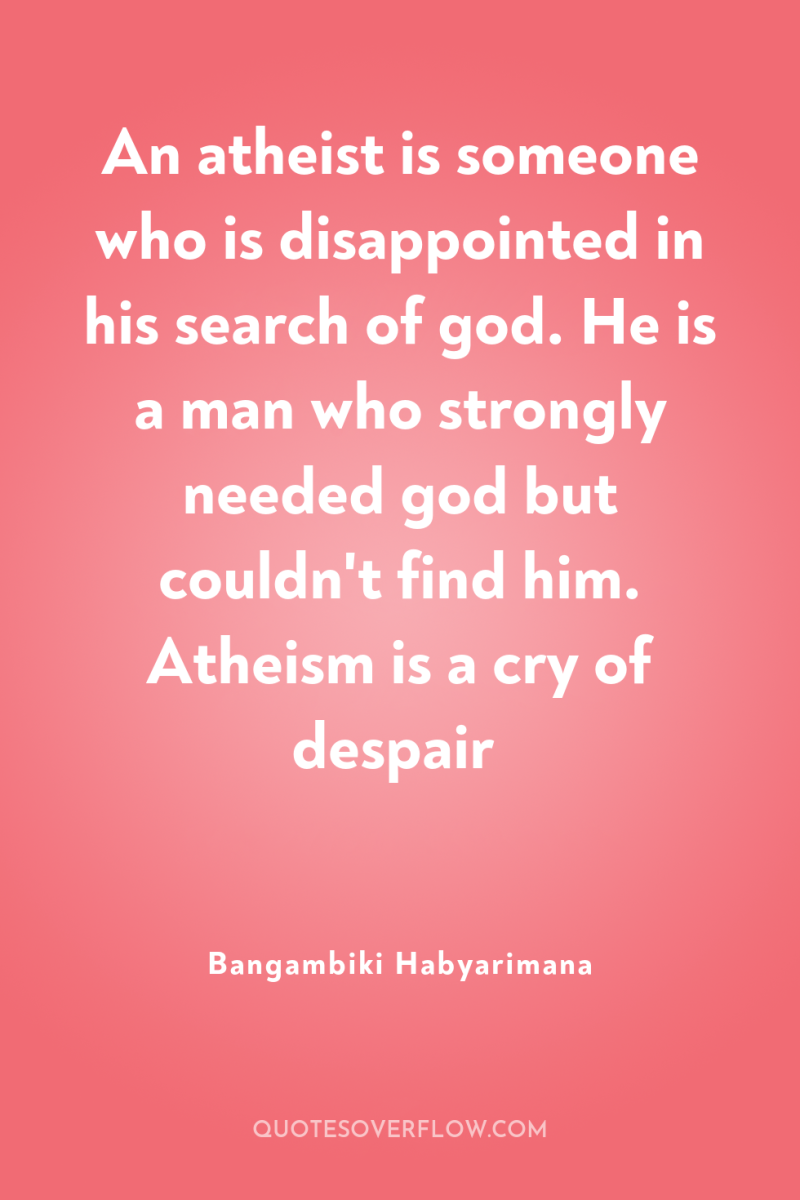
59
An atheist is someone who is disappointed in his search of god. He is a man who strongly needed god but couldn't find him. Atheism is a cry of despairBangambiki Habyarimana
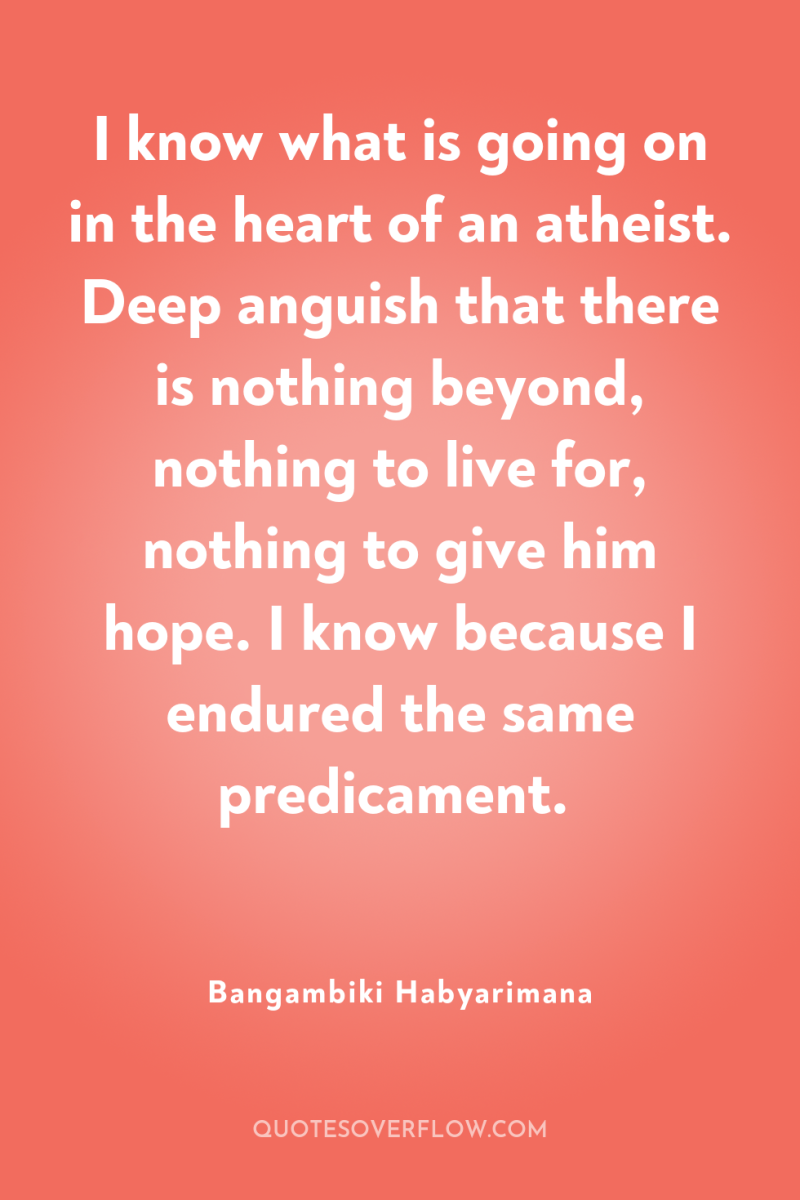
60
I know what is going on in the heart of an atheist. Deep anguish that there is nothing beyond, nothing to live for, nothing to give him hope. I know because I endured the same predicament.Bangambiki Habyarimana
61
After losing faith, even an atheist feels a yawning void in his soul that needs filling; there is nothing imaginable that he can fill with it. It was all along meant to be filled with the sacred, with the unknown and unknowable power. That's the curse or blessing of humanityBangambiki Habyarimana
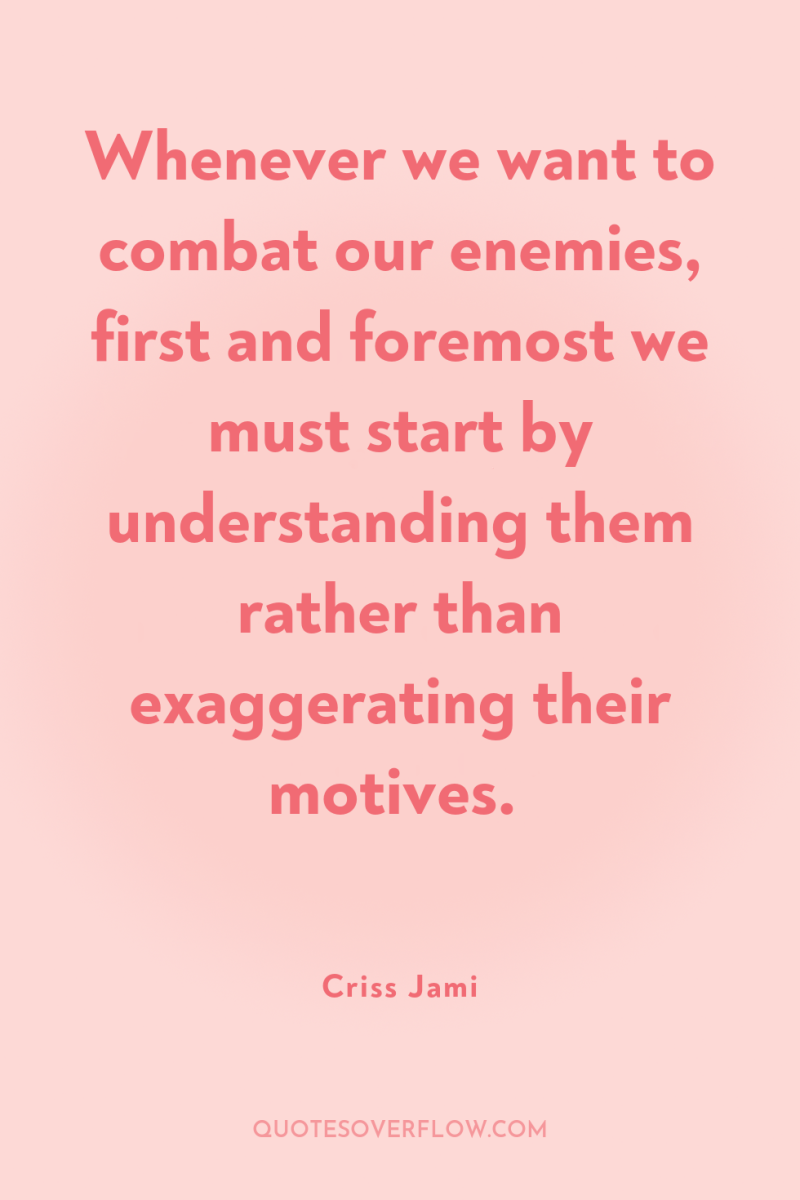
62
Whenever we want to combat our enemies, first and foremost we must start by understanding them rather than exaggerating their motives.Criss Jami
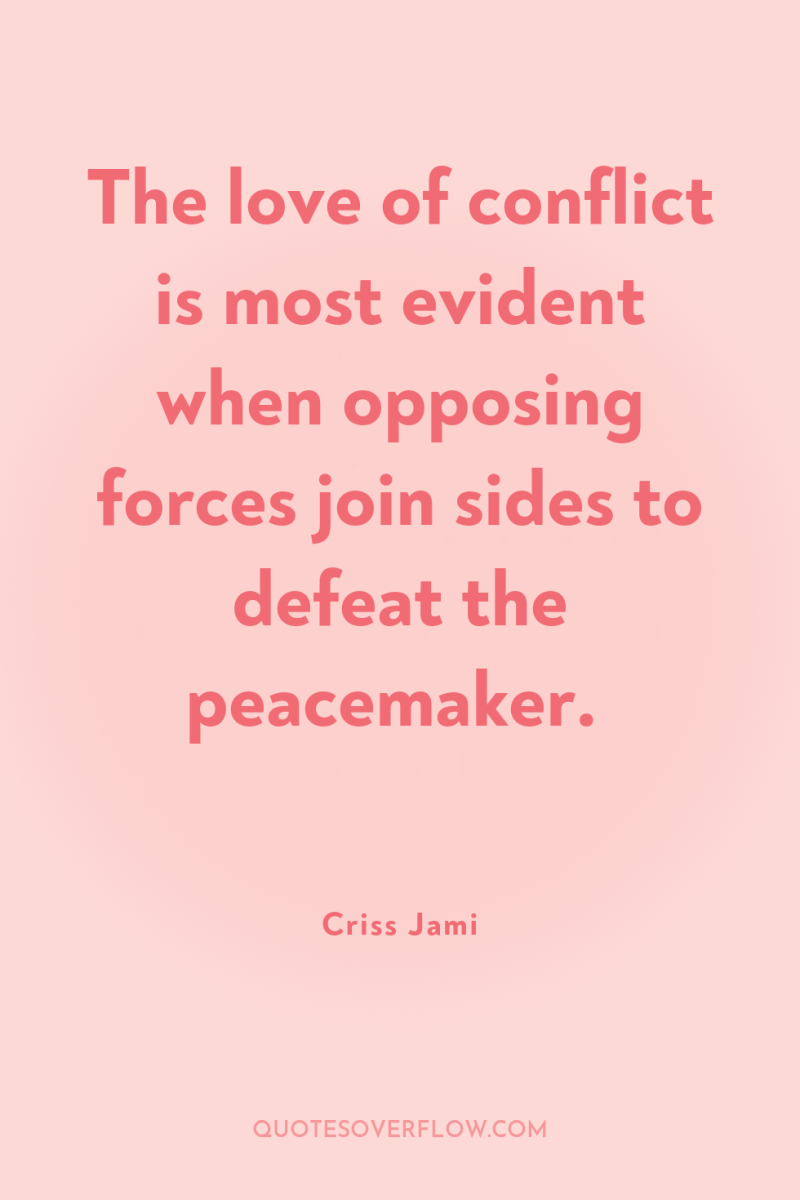
63
The love of conflict is most evident when opposing forces join sides to defeat the peacemaker.Criss Jami
64
Some readers may have noticed an icy little missive from Noam Chomsky ["Letters, " December 3], repudiating the very idea that he and I had disagreed on the "roots" of September 11. I rush to agree. Here is what he told his audience at MIT on October 11:Clever of him to have spotted that (his favorite put-down is the preface 'Turning to the facts..') and brave of him to have taken such a lonely position. As he rightly insists, our disagreements are not really political. .Christopher Hitchens
65
The 'pre-emption' versus 'prevention' debate may be a distinction without much difference. The important thing is to have it understood that the United States is absolutely serious. The jihadists have in the past bragged that America is too feeble and corrupt to fight. A lot is involved in disproving that delusion on their part.Christopher Hitchens
66
Nonsense has taken up residence in the heart of public debate and also in the academy. This nonsense is part of the huge fund of unreason on which the plans and schemes of optimists draw for their vitality. Nonsense confiscates meaning. It thereby puts truth and falsehood, reason and unreason, light and darkness on an equal footing. It is a blow cast in defence of intellectual freedom, as the optimists construe it, namely the freedom to believe anything at all, provided you feel better for it.Roger Scruton
67
...Society needs to open its collective mind to all ideas and ideologies. It needs to give its people the chance to listen to the opinions of others, and then examine them critically instead of rejecting them prematurely. Such a creative dialogue based on positive critical thinking can enhance and develop ideas.Raif Badawi

68
Whenever they are condemning weaves or breast implants, some people speak so passionately that their false teeth almost fall out.Mokokoma Mokhonoana
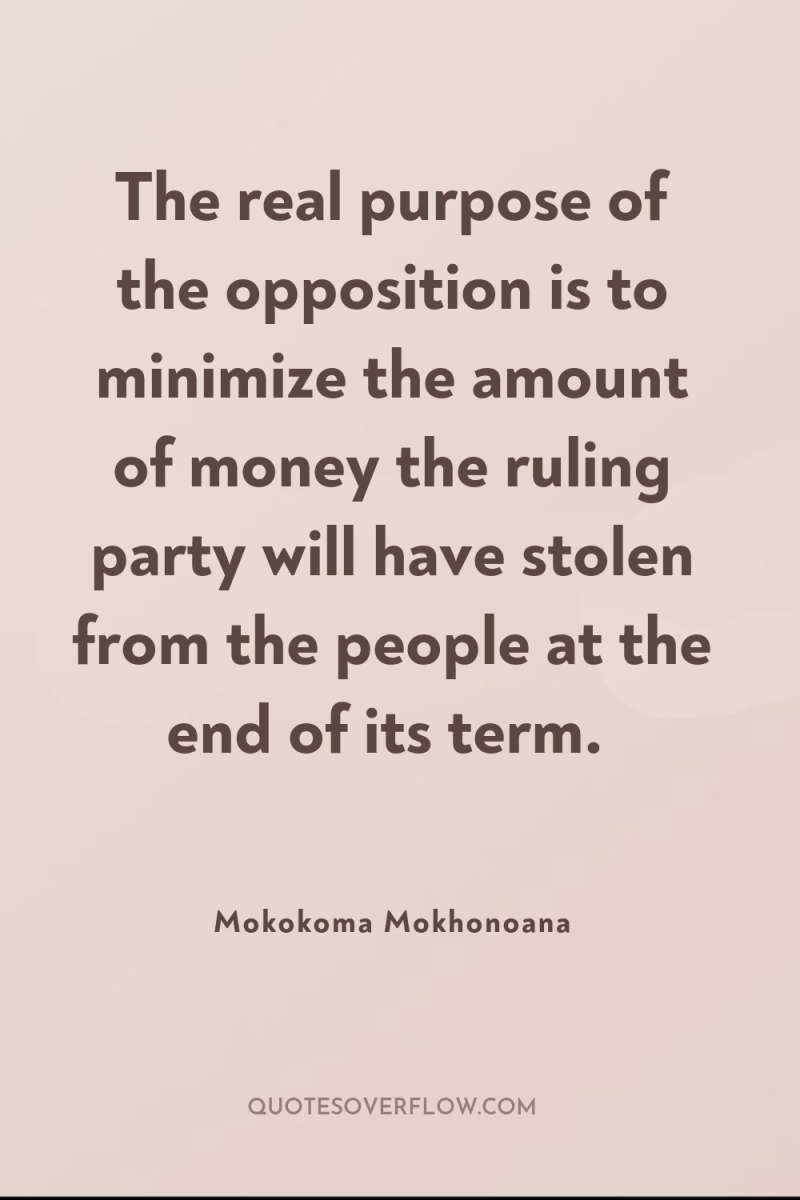
69
The real purpose of the opposition is to minimize the amount of money the ruling party will have stolen from the people at the end of its term.Mokokoma Mokhonoana
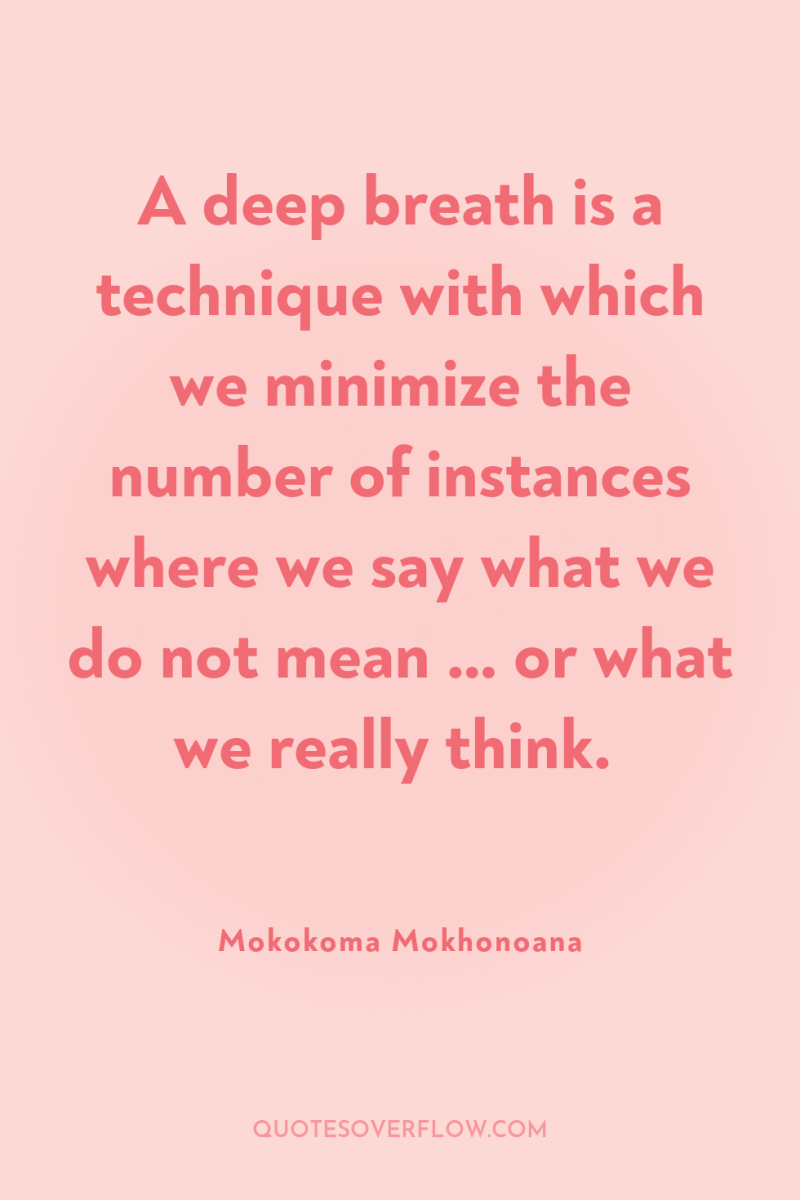
70
A deep breath is a technique with which we minimize the number of instances where we say what we do not mean … or what we really think.Mokokoma Mokhonoana
71
Ecologist Paul Ehrlich stressed that people who hold opposing opinions need to engage in open discussion with well-reasoned dissent. Positions should be questioned and criticized, not the people who hold them. Personal attacks preclude open discussion because, once someone is put on the defensive, fruitful exchanges are impossible, at least for the moment.Marc Bekoff
72
...There are also those who inadvertently grant power to another man's words by continuously trying to spite him. If a man gets to the point where he can simply say, 'The sky is blue, ' and people indignantly rush up trying to refute him saying, 'No, the sky is light blue, ' then, whether they realize it or not, he has become an authority figure even to such adversaries.Criss Jami
73
Engaging solely to validate your opinion takes away from the character building process.Unarine Ramaru
74
When it comes to moral dilemmas and matters of discerning right justice, my natural sympathy so often happens to land on the opposite end of that of most of my peers. I sometimes wonder if this is nothing more than the misguidedness and the wickedness of my own heart. I wonder other times if God wires some of us in such a way so that fair discourse might then be provided, so that honest and unbiased, due process is ultimately more likely to be carried out. Perhaps it is all necessary for variance of perception, for mindful debate: that the heart is meant to create a bit of bias on certain issues; as between one another, they weigh and balance. For not all hearts are the same.Criss Jami
75
Don't fight to be right, but fight when you are right.Amit Kalantri
76
Does giving your piece of mind, bring a peace of mind? Or is it better to be silent and let the war inside subside?Anthony Liccione
77
I wish for you a more difficult life, somewhere in the complicated center, where the courage of your convictions blends with humility and respect for others.Kenneth Patrick Ruscio
78
Practicing dialogue helps you to cultivate a realness that allows you to face reality on its own terms, not just the terms you’d like it to have in order to remain in your comfort zone.Oli Anderson
79
Idolatry happens when you worship or praise anything excessively to the point of causing you to believe it reigns supreme. All things on this earth are temporal, even your very own desires. Be careful that you do not create idols to worship.Amaka Imani Nkosazana
80
As for the majority, it is not so much race as it is political affiliation that really divides it today. What was once an issue of physical difference is now one of intellectual difference. Men have yet to master disagreeing without flashing all their frustrations that come with it; the conservative will throw half-truths while the liberal will throw insults. Combine these and what do you get? A dishonest mockery of a country. .Criss Jami
81
Killing, raping and looting have been common practices in religious societies, and often carried out with clerical sanction. The catalogue of notorious barbarities — wars and massacres, acts of terrorism, the Inquisition, the Crusades, the chopping off of thieves’ hands, the slicing off of clitorises and labia majora, the use of gang rape as punishment, and manifold other savageries committed in the name of one faith or another – attests to religion’s longstanding propensity to induce barbarity, or at the very least to give it free rein. The Bible and the Quran have served to justify these atrocities and more, with women and gay people suffering disproportionately. There is a reason the Middle Ages in Europe were long referred to as the Dark Ages; the millennium of theocratic rule that ended only with the Renaissance (that is, with Europe’s turn away from God toward humankind) was a violent time. Morality arises out of our innate desire for safety, stability and order, without which no society can function; basic moral precepts (that murder and theft are wrong, for example) antedated religion. Those who abstain from crime solely because they fear divine wrath, and not because they recognize the difference between right and wrong, are not to be lauded, much less trusted. Just which practices are moral at a given time must be a matter of rational debate. The 'master-slave' ethos — obligatory obeisance to a deity – pervading the revealed religions is inimical to such debate. We need to chart our moral course as equals, or there can be no justice.Jeffrey Tayler
82
You change society by changing the wind. Change the wind, transform the debate, recast the discussion, alter the context in which political discussions are being made, and you will change the outcomes... You will be surprised at how fast the politicians adjust to the change in the wind.Jim Wallis
83
The idea that you have to be protected from any kind of uncomfortable emotion is what I absolutely do not subscribe to.John Cleese
84
In projecting onto others their own moral sense, therapists sometimes make terrible errors. Child physical abusers are automatically labeled “impulsive, " despite extensive evidence that they are not necessarily impulsive but more often make thinking errors that justify the assaults. Sexual and physical offenders who profess to be remorseful after they are caught are automatically assumed to be sincere. After all, the therapist would feel terrible if he or she did such a thing. It makes perfect sense that the offender would regret abusing a child. People routinely listen to their own moral sense and assume that others share it. Thus, those who are malevolent attack others as being malevolent, as engaging in dirty tricks, as being “in it for the money, “ and those who are well meaning assume others are too, and keep arguing logically, keep producing more studies, keep expecting an academic debate, all the time assuming that the issue at hand is the truth of the matter. Confessions of a Whistle-Blower: Lessons Learned Author: Anna C. Salter. Ethics & Behavior, Volume 8, Issue 2 June 1998 p122.Anna C. Salter
85
Look, Aerin, preparation is only half the challenge of winning a debate.”“ And the other half?” He had her now. “You have to choose the right side.”“ Your side, you mean.” She bristled.“ No, the losing side.”“ What?”“ Always choose the weaker side.”“ Why would I do that?” Doubt edged her voice, but now she was sitting erect, her feet flat on the floor.“ Because then you have further to go to prove your case.” He eased the feet of his chair down. “In a debate, there are two sides. If both make a good argument, then the less popular side wins because that side had further to go to prove its point. Simple logistics.”“ If you don’t care which side wins.” She frowned.“ It’s a debate. It doesn’t matter which side wins.”“ You mean it doesn’t matter to you.” The tone in her voice unsettled him. Or maybe it was the fact that that her criticism disturbed him at all.“ It’s a class, ” he said. “The point is to flesh out the different sides of an argument.”“ And you don’t care if the truth gets lost in the shuffle. Don’t you believe in anything?! .Anne Osterlund
86
When I find that stubbornness continually overrides common sense regardless of the logic of my argument, it seems that the only effective solution is to tell them to go ahead and stick their finger in the socket. And what I find is that what my argument failed to solve, electricity does quite nicely.Craig D. Lounsbrough
87
Once a person has made some sort of stable, symbolic connection between two things, the connection will influence his subsequent behavior and will generate its own 'proof.' This is why it is idle and foolish to try to 'refute' religious, political, and similar beliefs with empirical arguments about referents that are symbols to the believer but not to the non-believer.Thomas Szasz
88
Your patterns of thought, existing bodies of knowledge, beliefs, predispositions, etc. are the 'stuff of your mental universe'. We are always subject to the power of our mental inertia. The waves in our mental oceans can never be magically stilled, and are therefore always impacting our new beliefs, even when we become scrutinizing adults. It is simply impossible to 'wipe the slate clean' and start over. These effects remain with us throughout our entire lives. Even the beliefs that we later discard are difficult to completely negate, and leave their own residual effects. .Daniel Ionson
89
Real life issues are not mathematical equations. We’re not calculators crunching numbers. We’re humans sorting through complex, multi-layered issues, and we’re doing so while enduring the (sometimes profound) personal effects of our conclusions. While we want to be reasonable, we are inexorably pulled in the direction of our oldest mental habits and by our deepest life-impacting needs. We’re repelled by those ideas which can jeopardize our comfort, safety, and happiness. We can try to be fair, but all the while we are fighting against our needs and fears. There are things we don’t want to be true (or false). Our lives are built on certain beliefs which, if disproved, could wreck us. These are the truths that we 'can’t handle'.Daniel Ionson
90
If we want to use a physical analogy, a more accurate one would show that many of our beliefs are like boulders pushed off from the top of a mountain. The boulder tips, and the thousands of contours of the mountainside, along with any trees (or lack thereof), its hardness, etc., react to the shape, size, and contours of the boulder itself. Rainfalls alter how much cushion the earth gives when the boulder slams into it and how much trees and shrubs will bend before breaking. All of these variables mix and, based on its bounces and rotations, the boulder lands in a very specific spot at the bottom. In many ways, this is how we form many of our beliefs–by countless, unique mental influences pushing us this way and that.Daniel Ionson
91
The Existential-Epistemic Spiral–MeaningOur central beliefs shape and guide us, but the staggering synergistic power of our dynamics working together creates an existential centripetal force at the core of our being–meaning. Nothing affects us like meaning. Meaning is everything, the cumulative effect of all dynamics spinning inside of us. It generates and sustains our identity, creates stability and purpose. It drives our choices, shapes our feelings, and guides our morality.Daniel Ionson
92
We all live within our belief solar systems; it’s how we make it through each day. What feels “real” and “true” is based on it. Internal consistency and function means that a belief solar system is simply livable, but it says nothing about its veracity.Daniel Ionson
93
Naturally, I always place my word over anyone else's simply because I know why I said what I said.Criss Jami
94
I believe God himself will someday debate with and answer every objection arrogant men can come up with against him; I believe he will humble us and humor himself. Know-it-alls, pseudo-intellectuals, militant anti-theists, for Christ's sake, or rather their own sake, best beware of getting roasted by their own medicine. Ah! Our delusions of trying to argue against an omniscient Creator.Criss Jami
95
Lincoln had entirely outgrown juvenile delight in religious argument. Talking with God seemed to the mature Lincoln more important than talking about Him.Elton Trueblood
96
I am not here to merely argue about the perplexities regarding theism or philosophy, but to be a light to the world and to reach out to those who long to be a part of that light.Criss Jami
97
N order to capture someone's attention, you must allow them to have the mental and emotional space to let you in.Auliq Ice
98
This vacillation between assertion and denial in discussions about organised abuse can be understood as functional, in that it serves to contain the traumatic kernel at the heart of allegations of organised abuse. In his influential ‘just world’ theory, Lerner (1980) argued that emotional wellbeing is predicated on the assumption that the world is an orderly, predictable and just place in which people get what they deserve. Whilst such assumptions are objectively false, Lerner argued that individuals have considerable investment in maintaining them since they are conducive to feelings of self–efficacy and trust in others. When they encounter evidence contradicting the view that the world is just, individuals are motivated to defend this belief either by helping the victim (and thus restoring a sense of justice) or by persuading themselves that no injustice has occurred. Lerner (1980) focused on the ways in which the ‘just world’ fallacy motivates victim-blaming, but there are other defences available to bystanders who seek to dispel troubling knowledge. Organised abuse highlights the severity of sexual violence in the lives of some children and the desire of some adults to inflict considerable, and sometimes irreversible, harm upon the powerless. Such knowledge is so toxic to common presumptions about the orderly nature of society, and the generally benevolent motivations of others, that it seems as though a defensive scaffold of disbelief, minimisation and scorn has been erected to inhibit a full understanding of organised abuse. Despite these efforts, there has been a recent resurgence of interest in organised abuse and particularly ritualistic abuse (eg Sachs and Galton 2008, Epstein et al. 2011, Miller 2012).Michael Salter
99
Some readers may find it a curious or even unscientific endeavour to craft a criminological model of organised abuse based on the testimony of survivors. One of the standard objections to qualitative research is that participants may lie or fantasise in interview, it has been suggested that adults who report severe child sexual abuse are particularly prone to such confabulation. Whilst all forms of research, whether qualitative or quantitative, may be impacted upon by memory error or false reporting. there is no evidence that qualitative research is particularly vulnerable to this, nor is there any evidence that a fantasy– or lie–prone individual would be particularly likely to volunteer for research into child sexual abuse. Research has consistently found that child abuse histories, including severe and sadistic abuse, are accurate and can be corroborated (Ross 2009, Otnow et al. 1997, Chu et al. 1999). Survivors of child abuse may struggle with amnesia and other forms of memory disturbance but the notion that they are particularly prone to suggestion and confabulation has yet to find a scientific basis. It is interesting to note that questions about the veracity of eyewitness evidence appear to be asked far more frequently in relation to sexual abuse and rape than in relation to other crimes. The research on which this book is based has been conducted with an ethical commitment to taking the lives and voices of survivors of organised abuse seriously. .Michael Salter
100
Today, acknowledgement of the prevalence and harms of child sexual abuse is counterbalanced with cautionary tales about children and women who, under pressure from social workers and therapists, produce false allegations of ‘paedophile rings’, ‘cult abuse’ and ‘ritual abuse’. Child protection investigations or legal cases involving allegations of organised child sexual abuse are regularly invoked to illustrate the dangers of ‘false memories’, ‘moral panic’ and ‘community hysteria’. These cautionary tales effectively delimit the bounds of acceptable knowledge in relation to sexual abuse. They are circulated by those who locate themselves firmly within those bounds, characterising those beyond as ideologues and conspiracy theorists. However firmly these boundaries have been drawn, they have been persistently transgressed by substantiated disclosures of organised abuse that have led to child protection interventions and prosecutions. Throughout the 1990s, in a sustained effort to redraw these boundaries, investigations and prosecutions for organised abuse were widely labelled ‘miscarriages of justice’ and workers and therapists confronted with incidents of organised abuse were accused of fabricating or exaggerating the available evidence. These accusations have faded over time as evidence of organised abuse has accumulated, while investigatory procedures have become more standardised and less vulnerable to discrediting attacks. However, as the opening quotes to this introduction illustrate, the contemporary situation in relation to organised abuse is one of considerable ambiguity in which journalists and academics claim that organised abuse is a discredited ‘moral panic’ even as cases are being investigated and prosecuted.Michael Salter